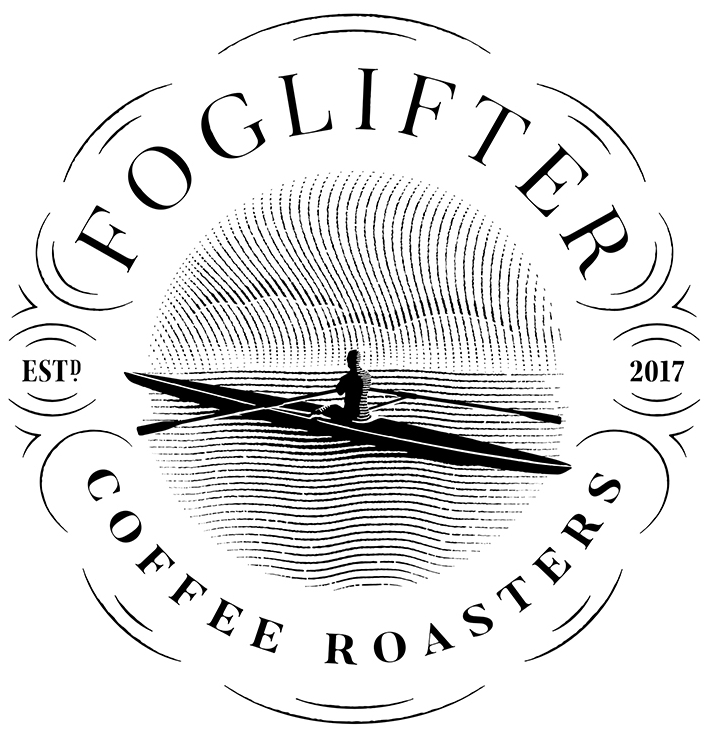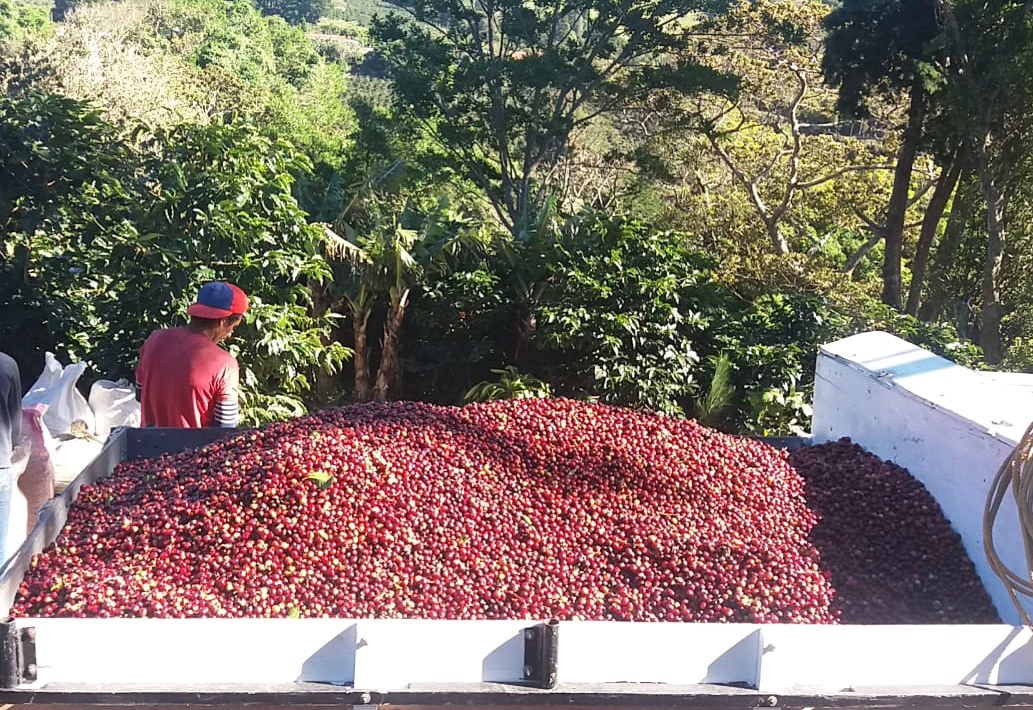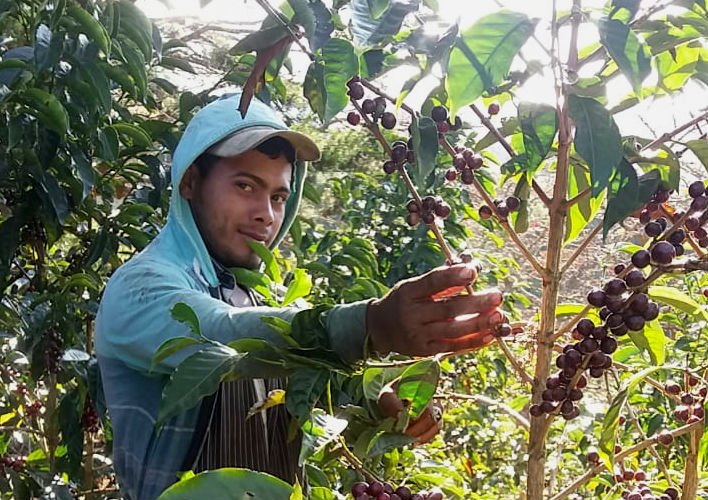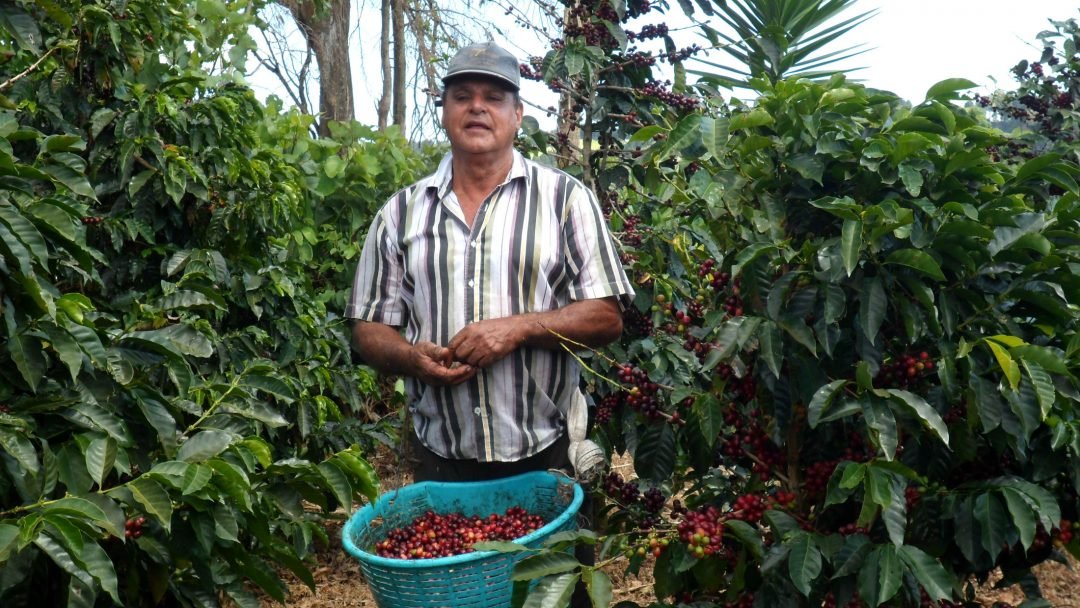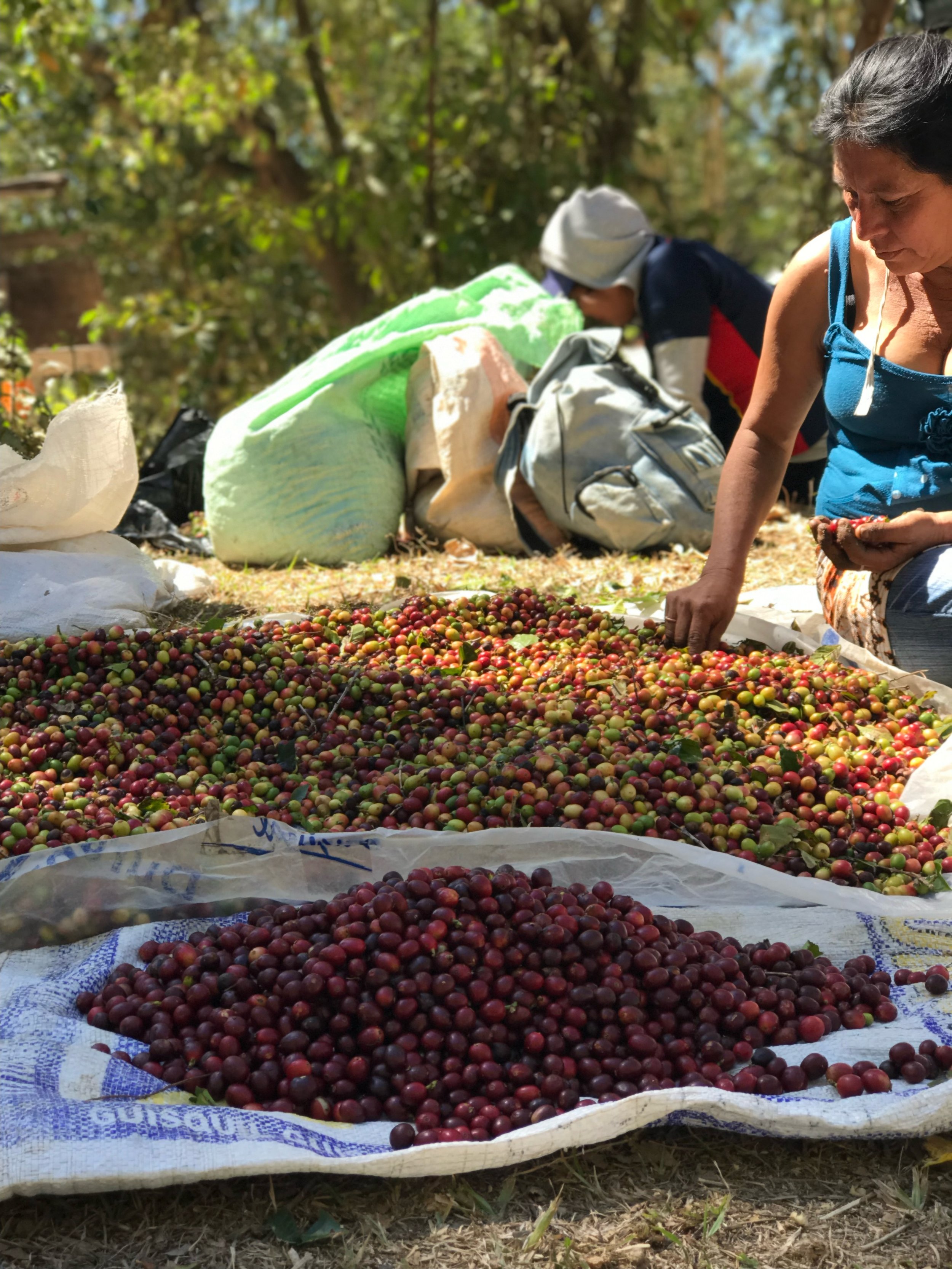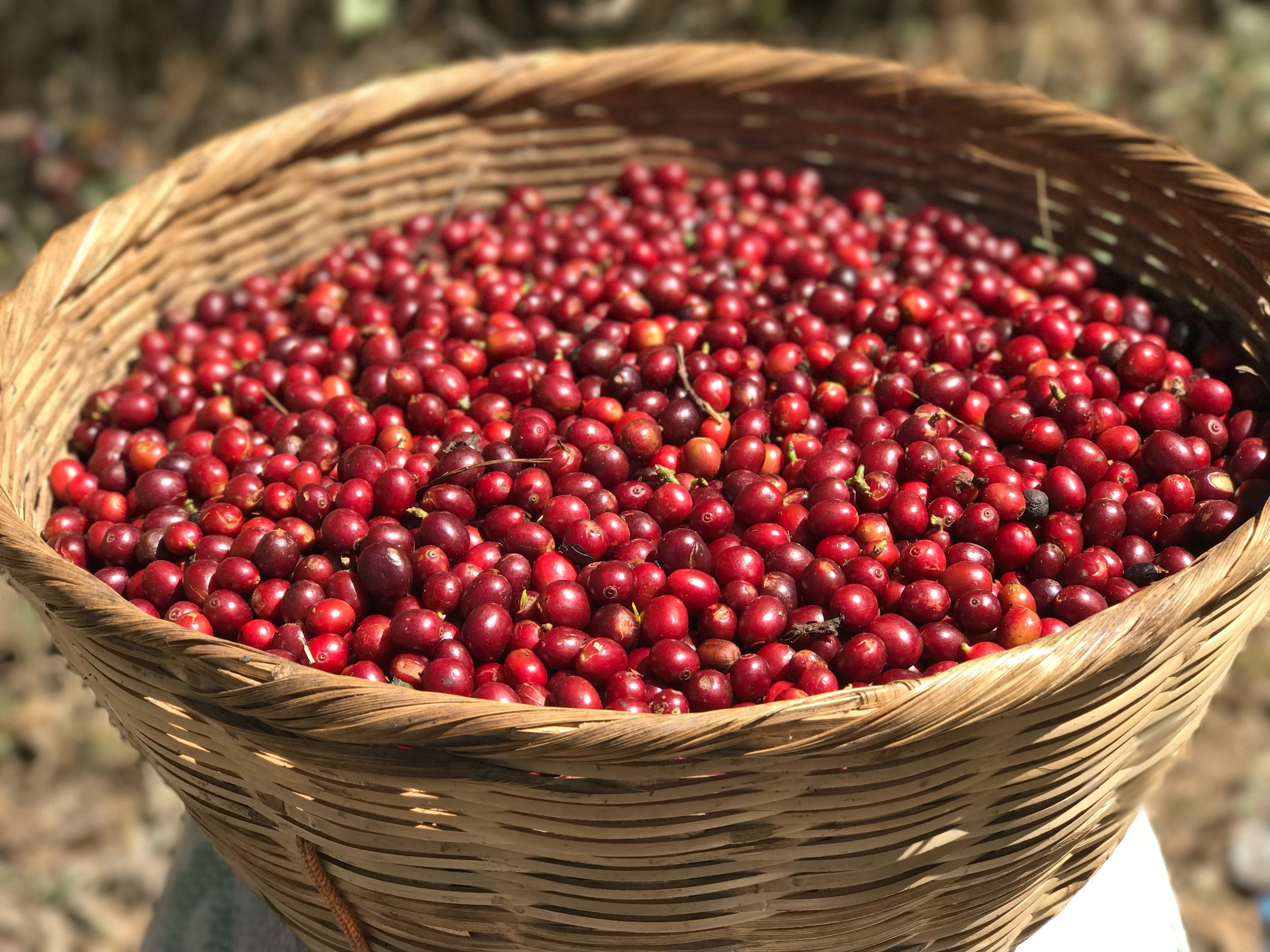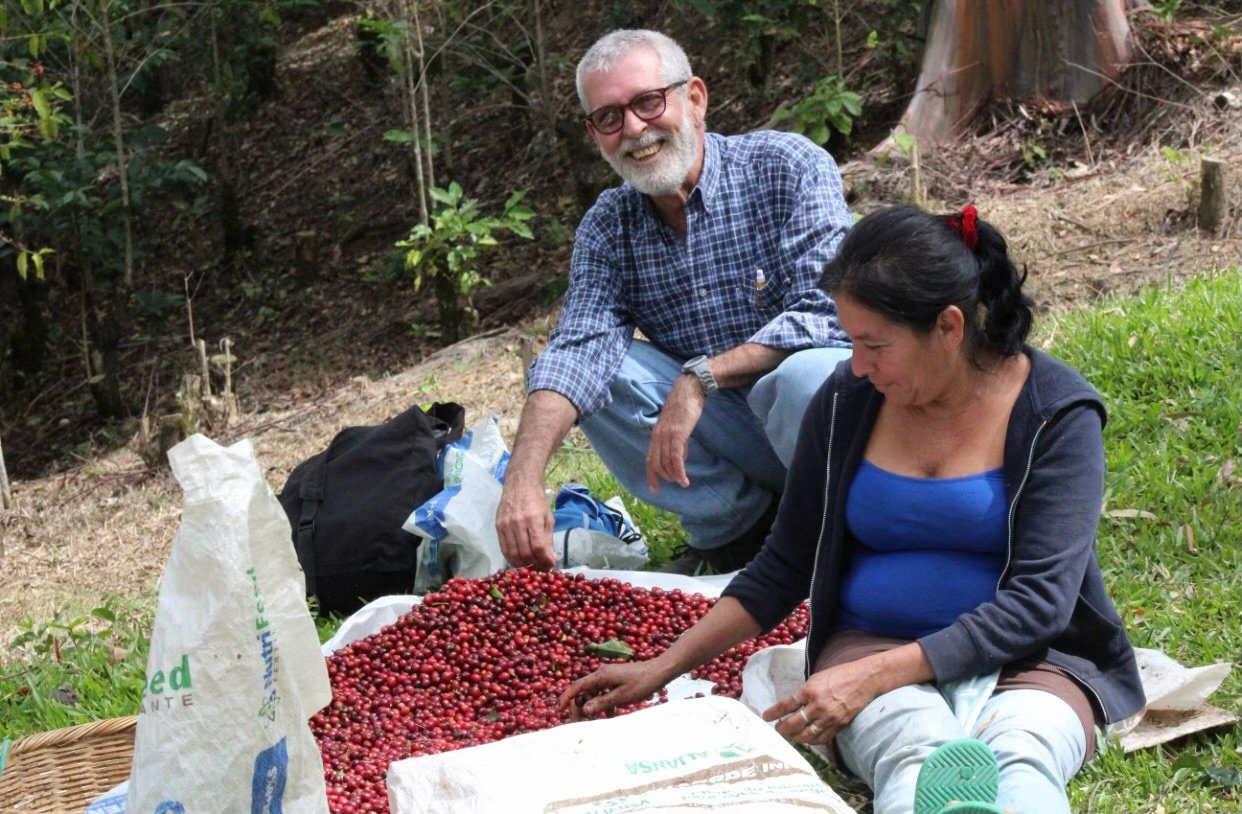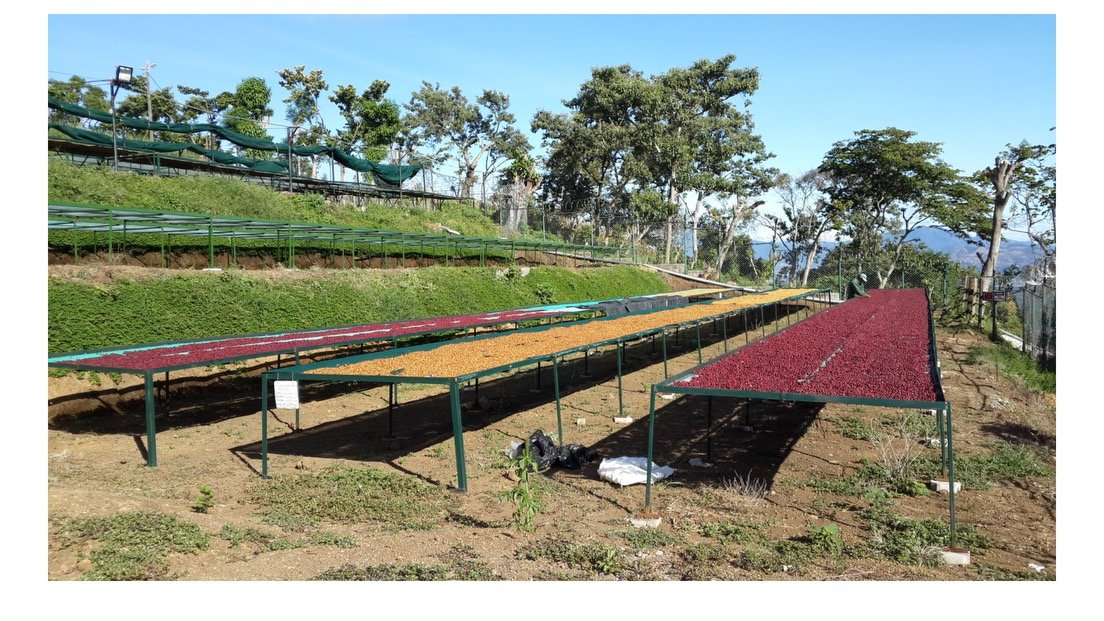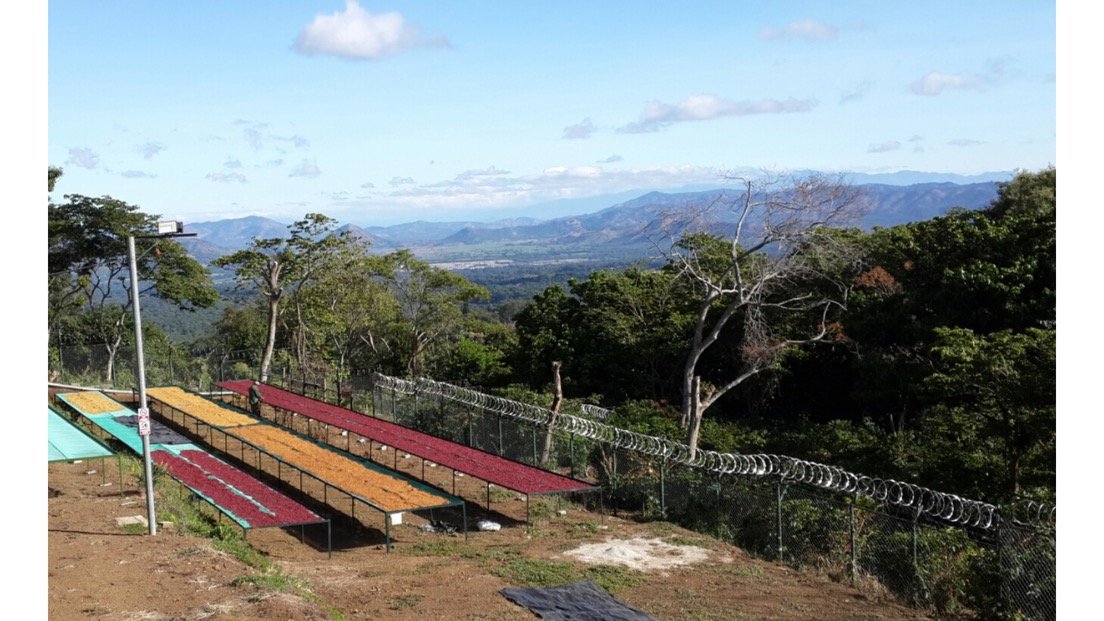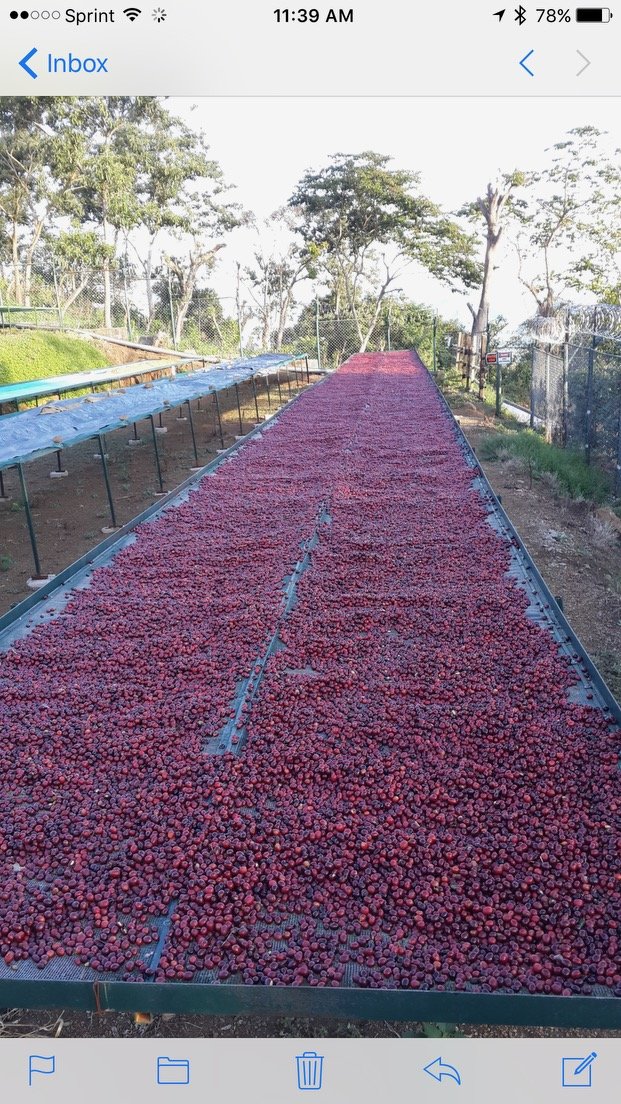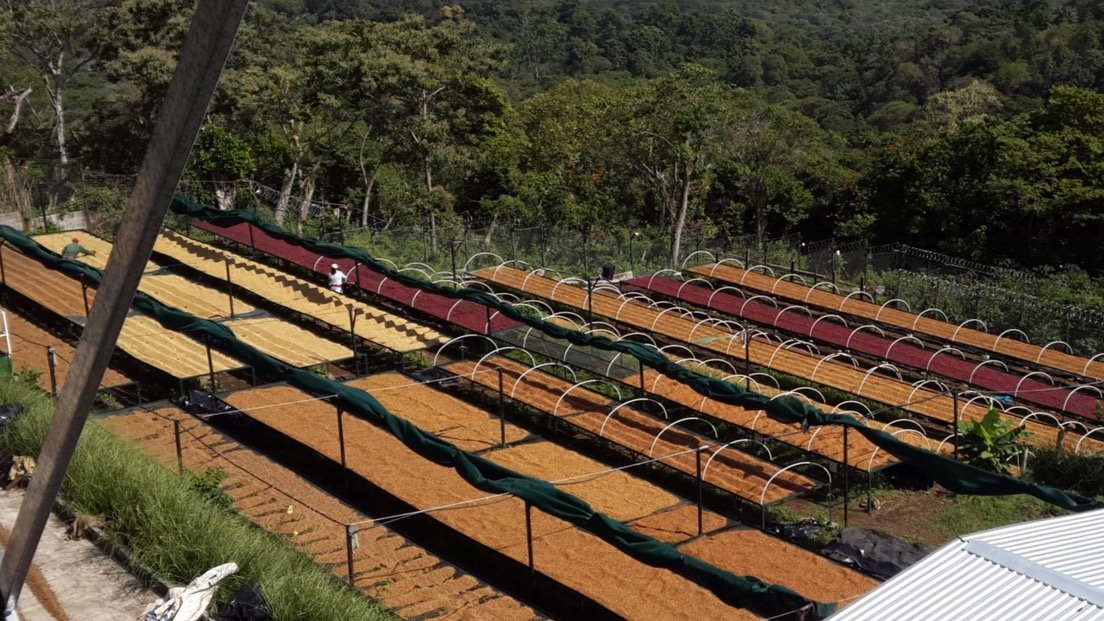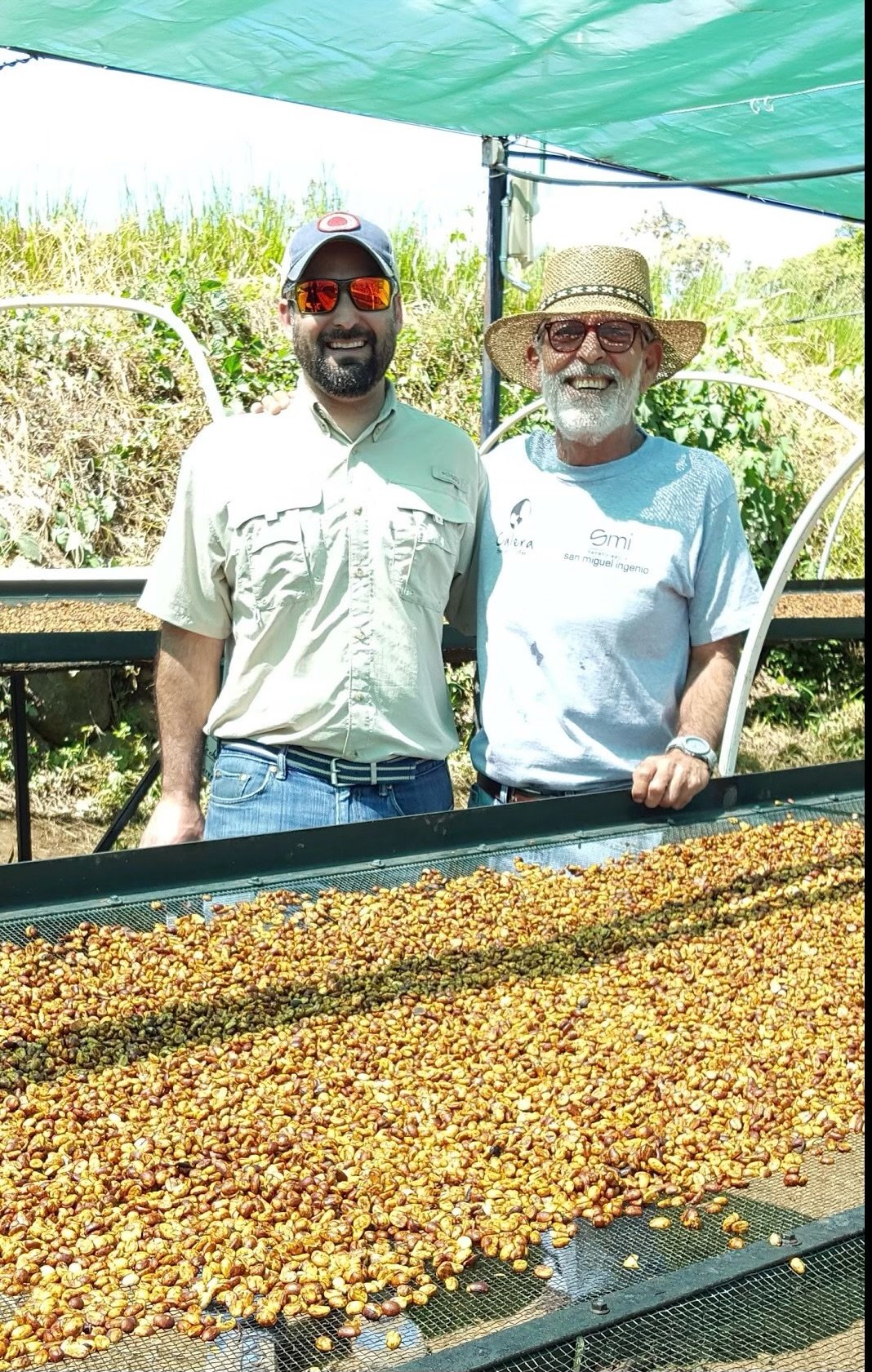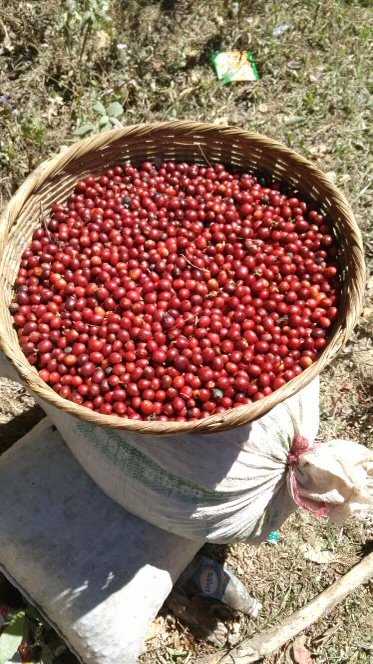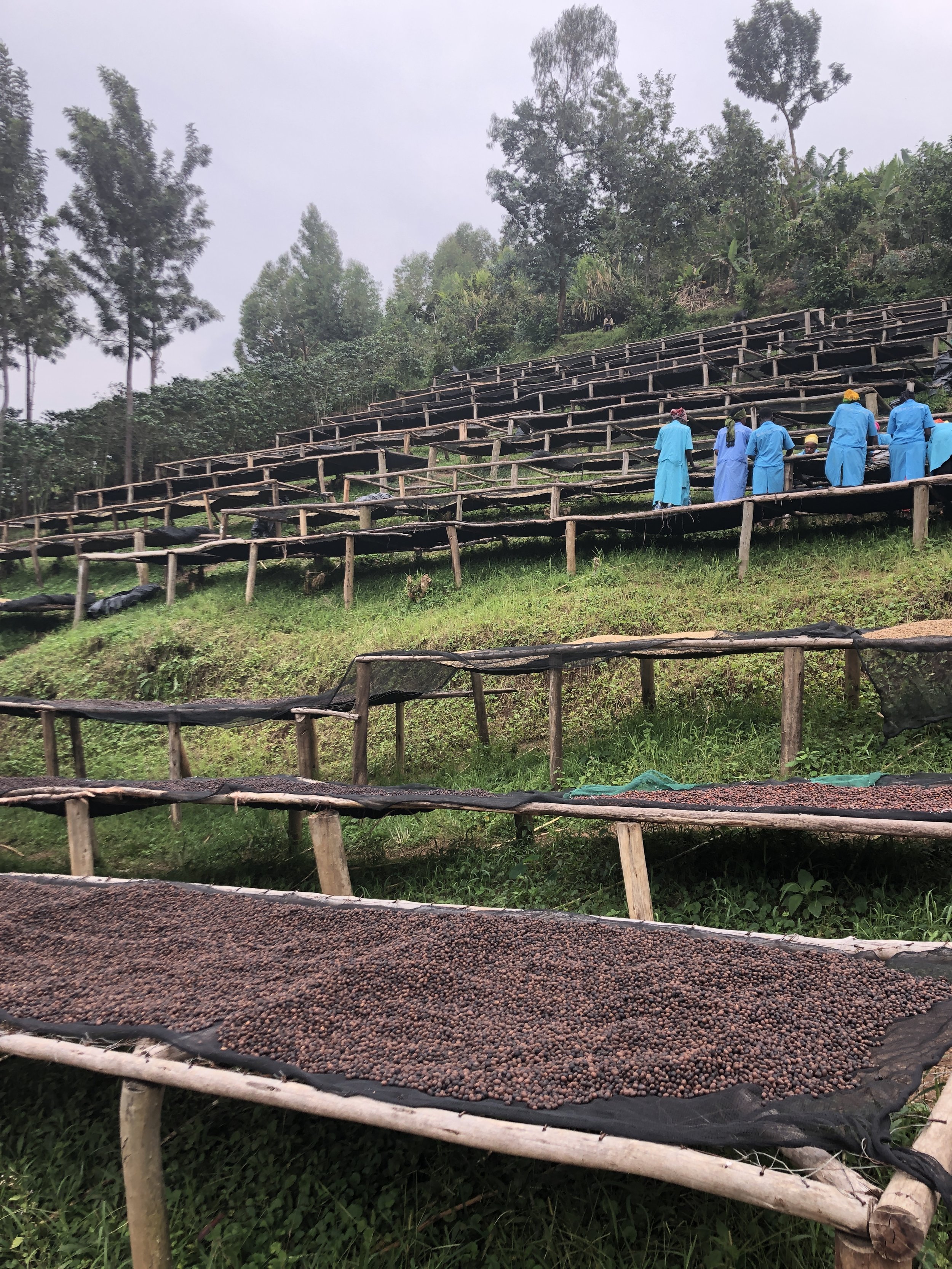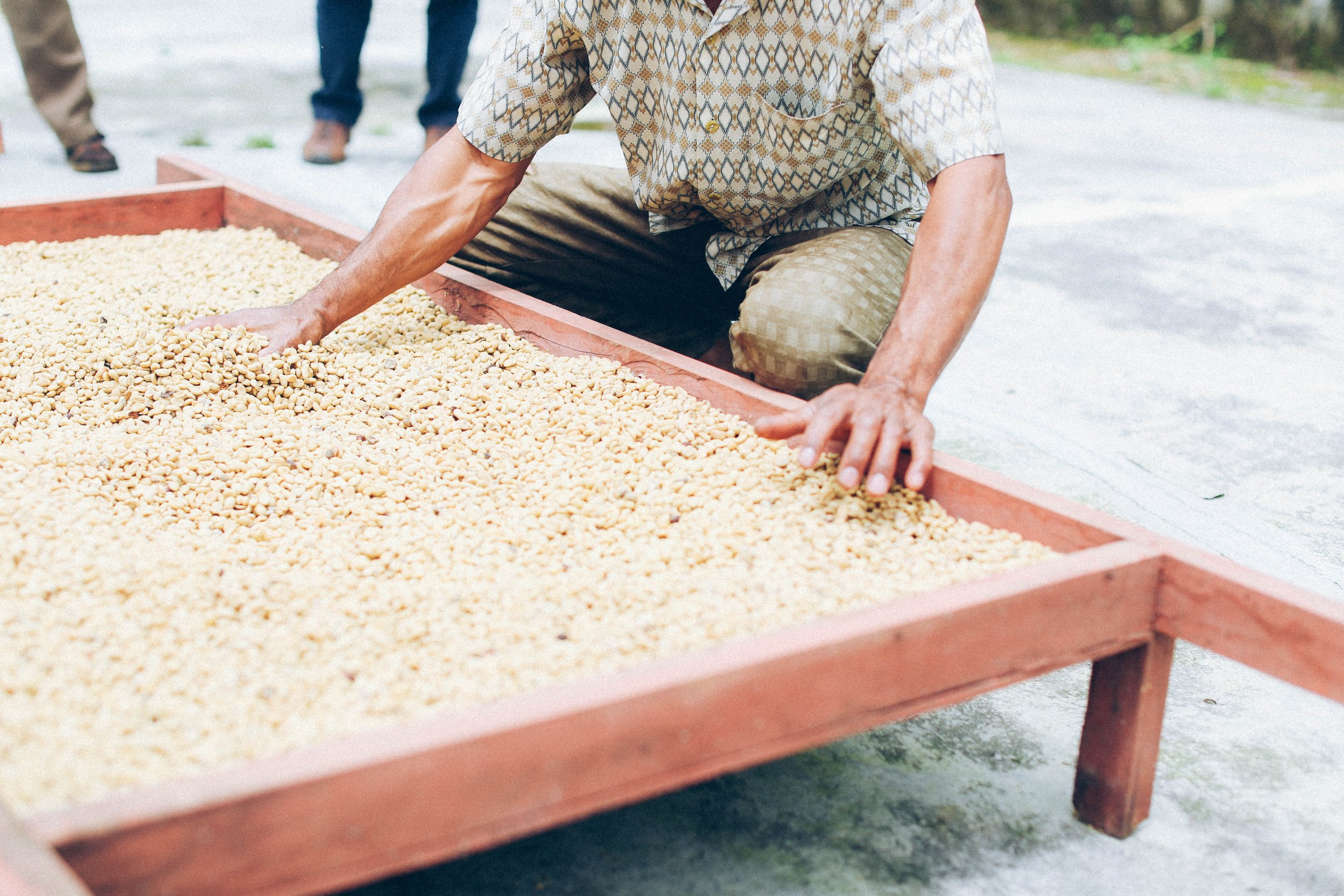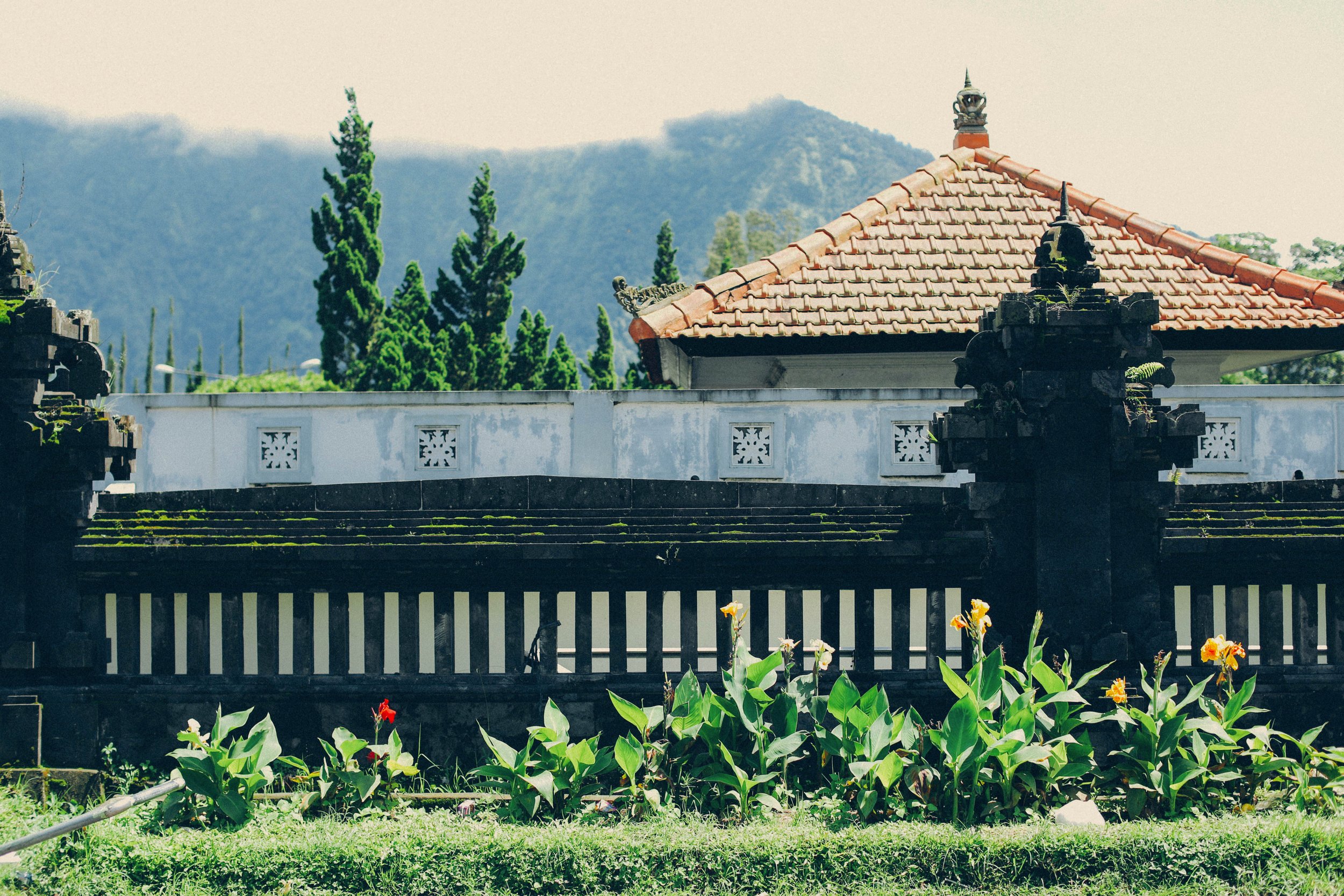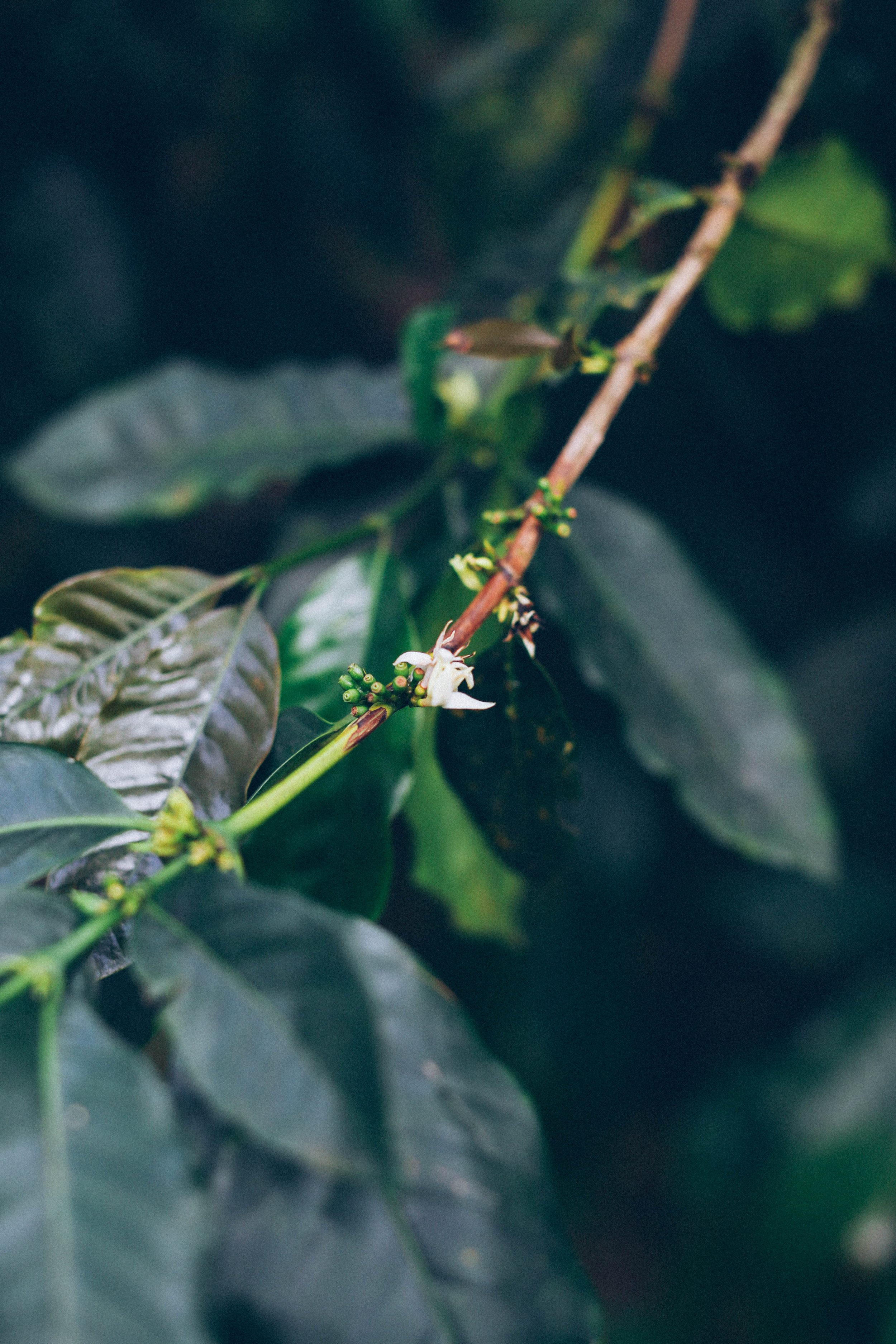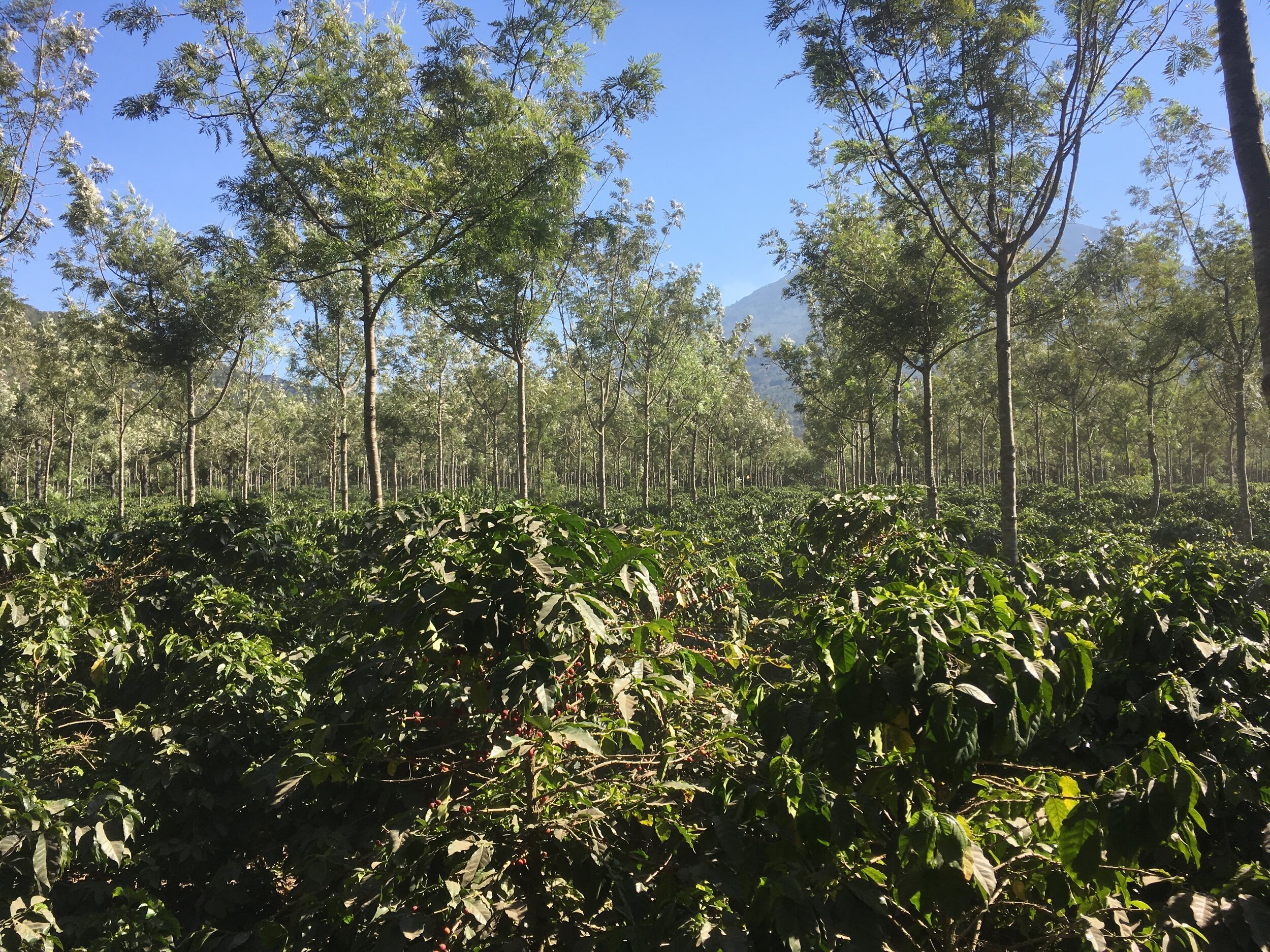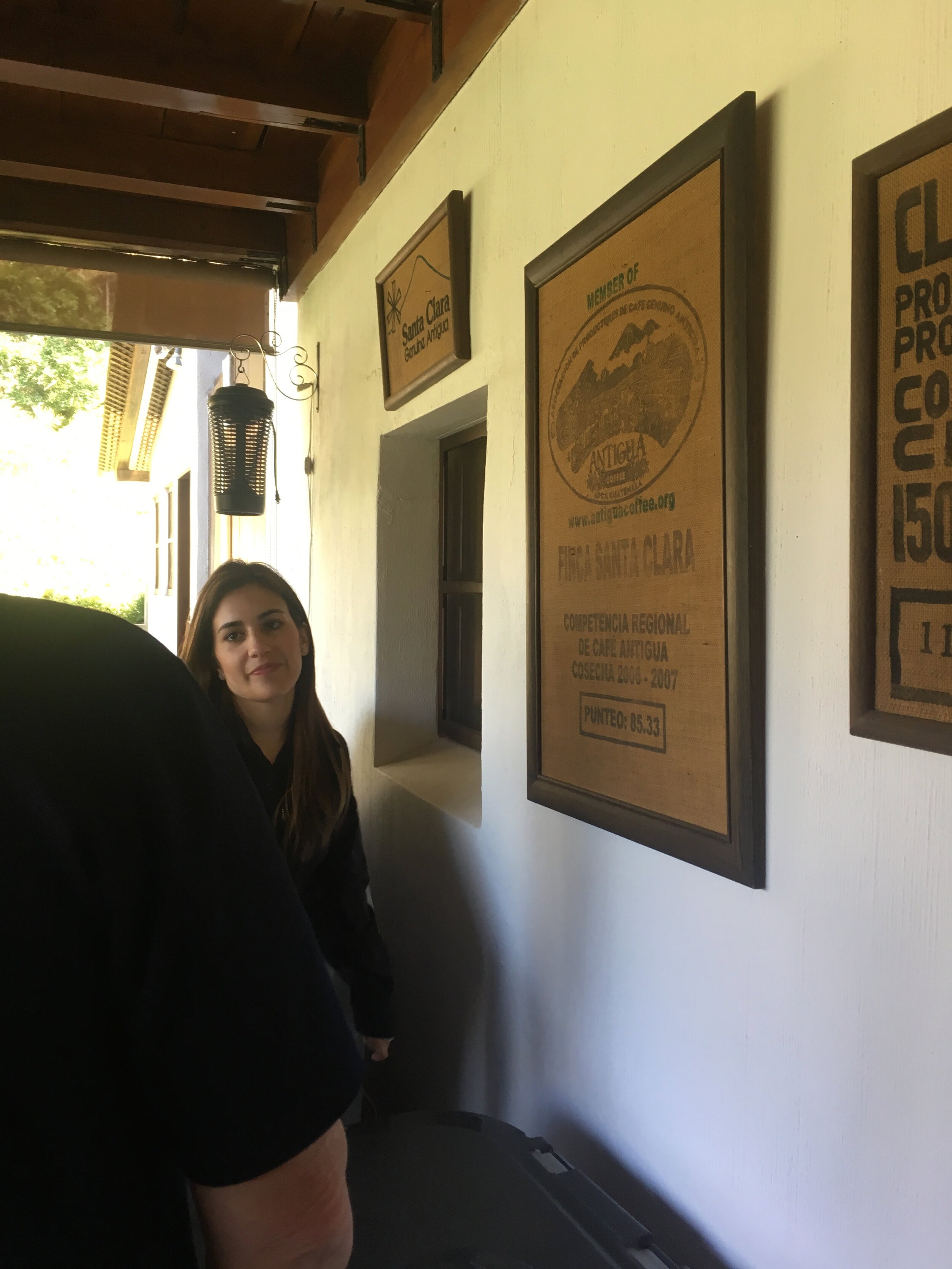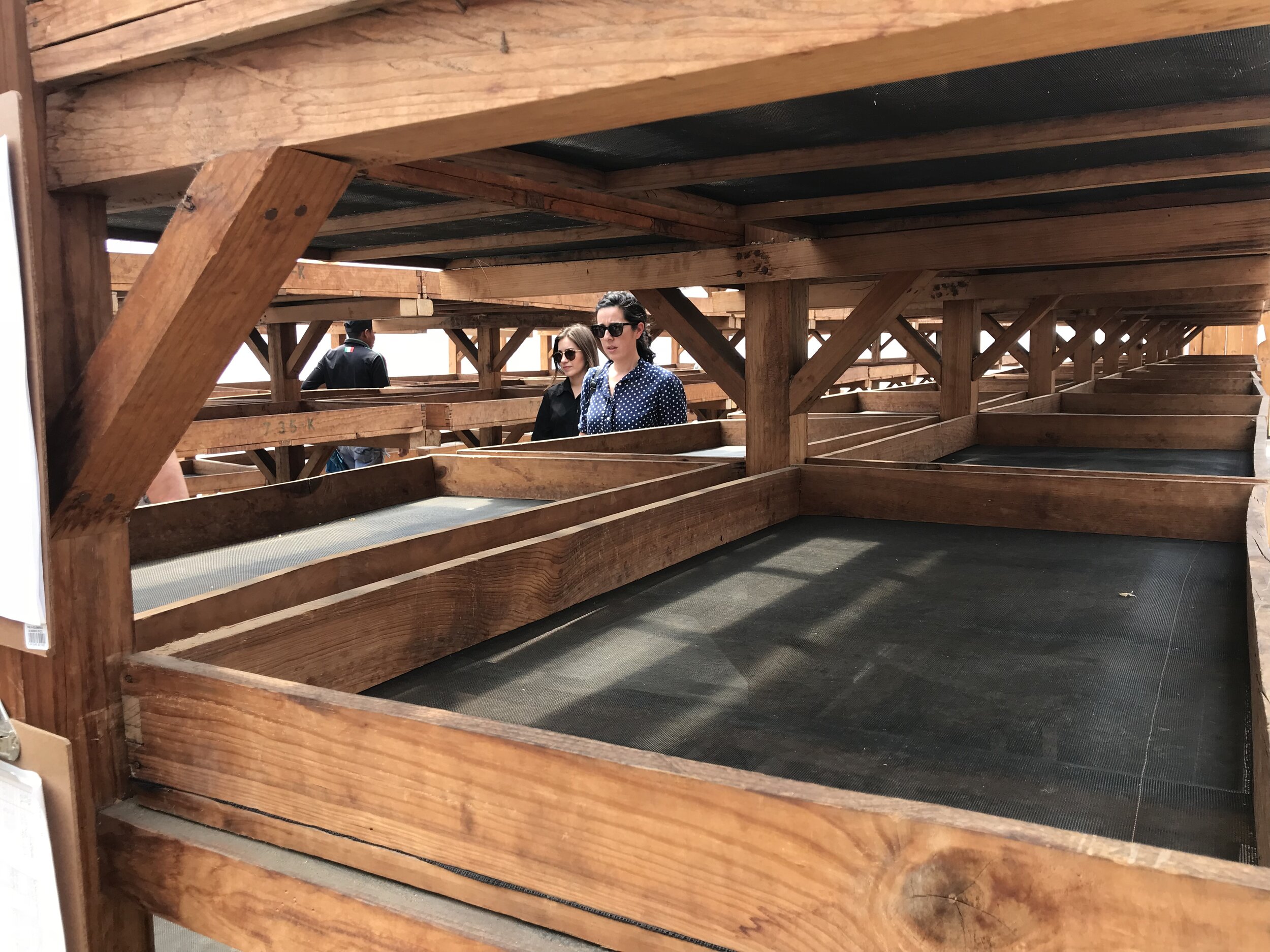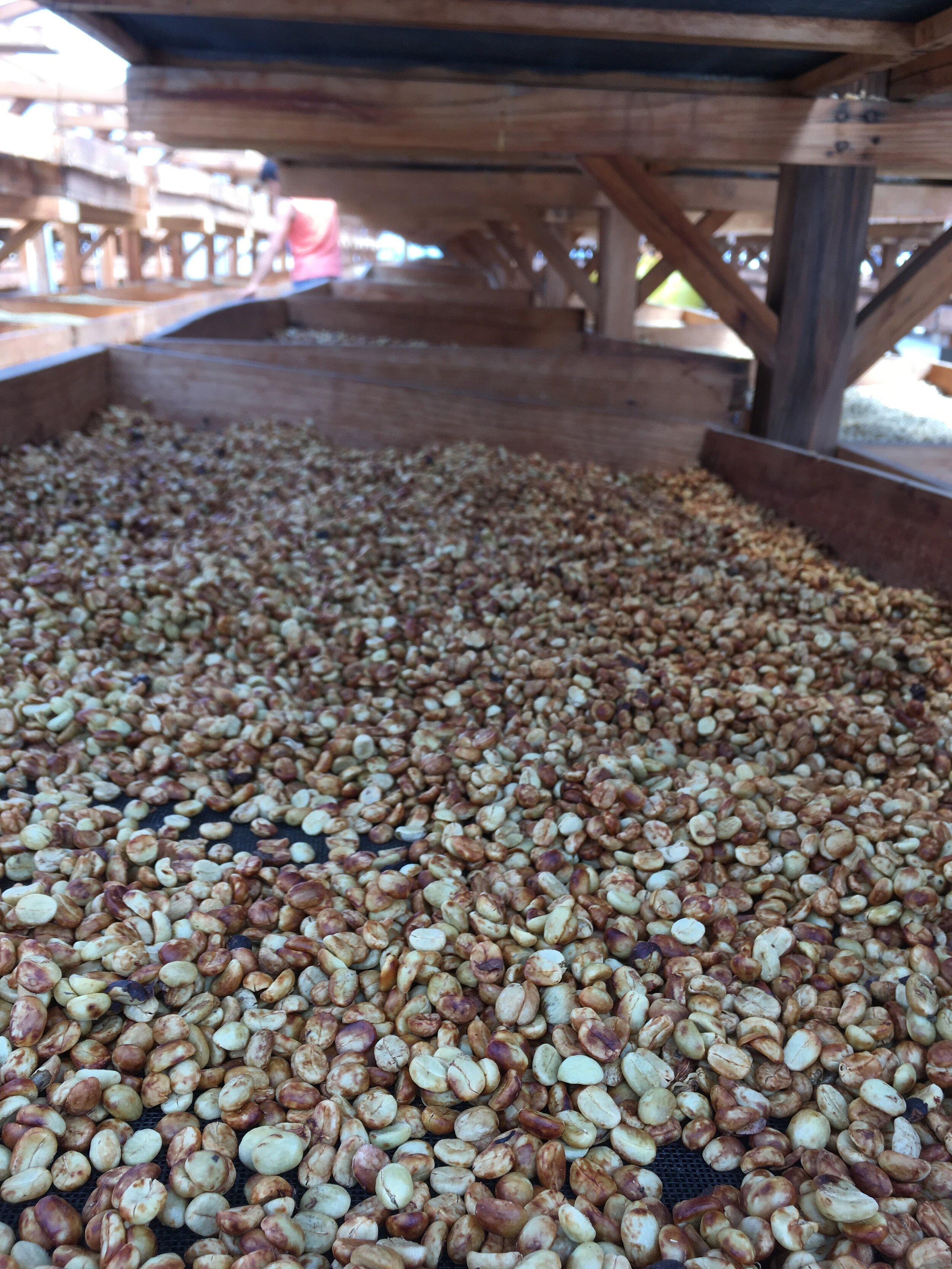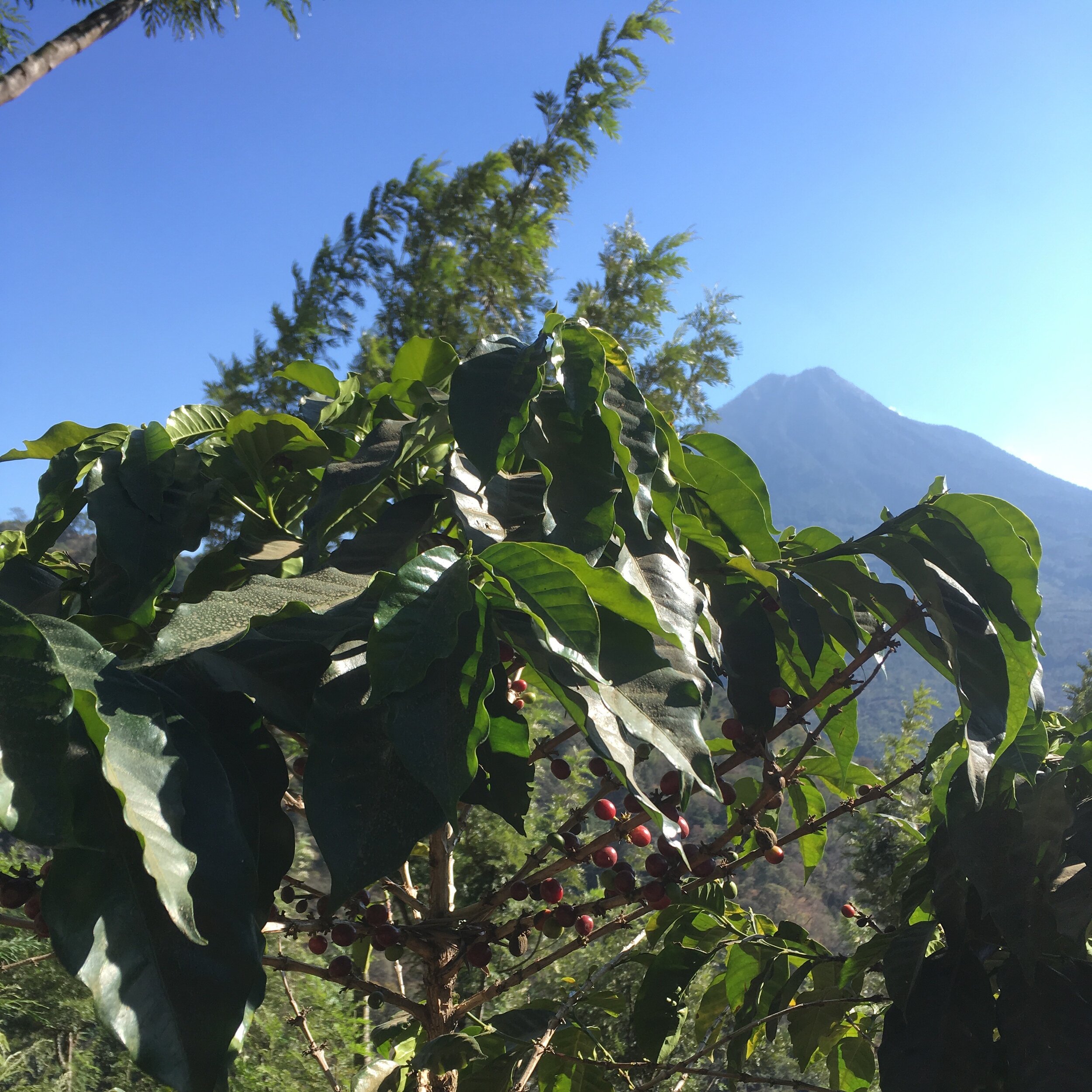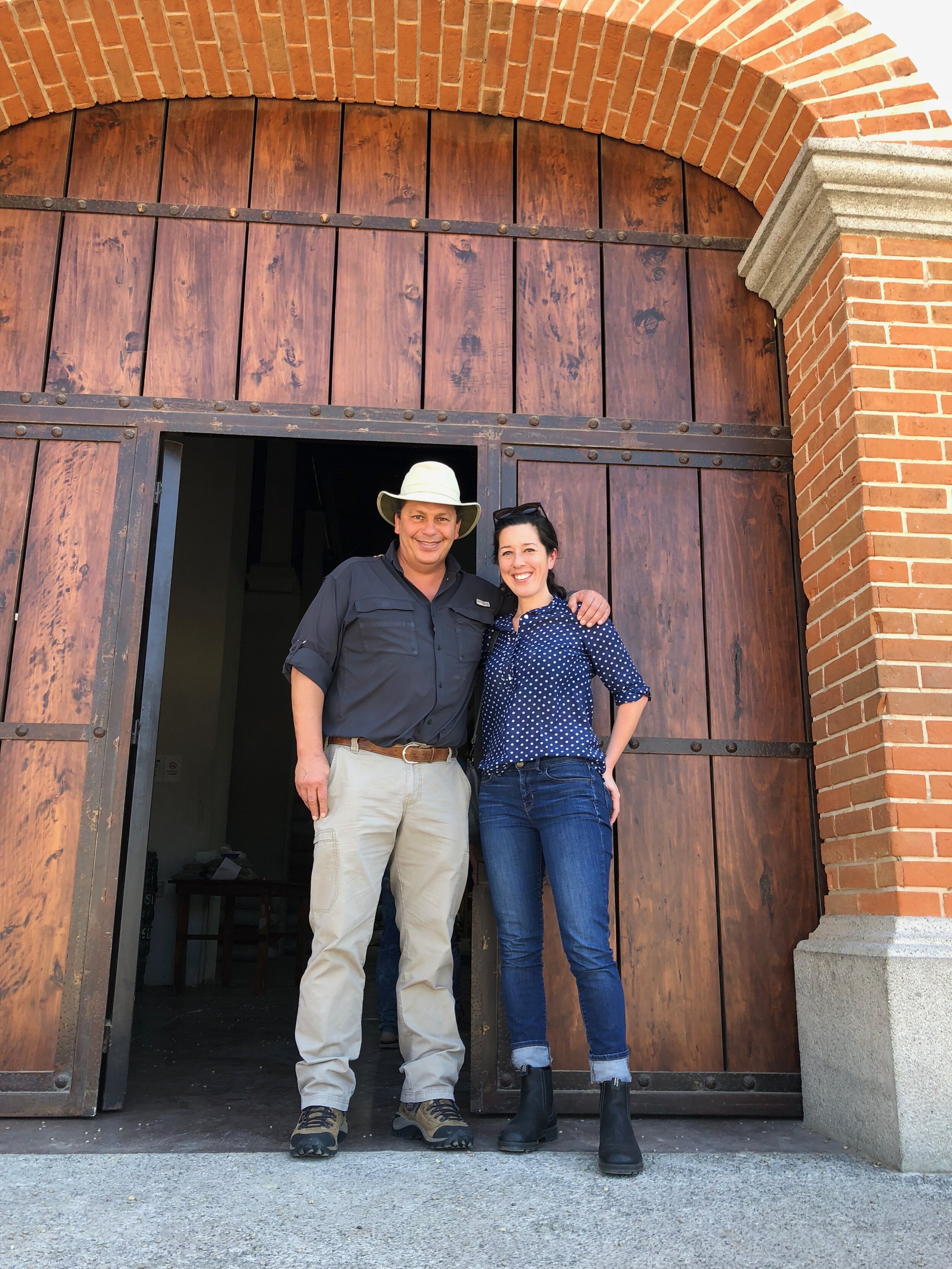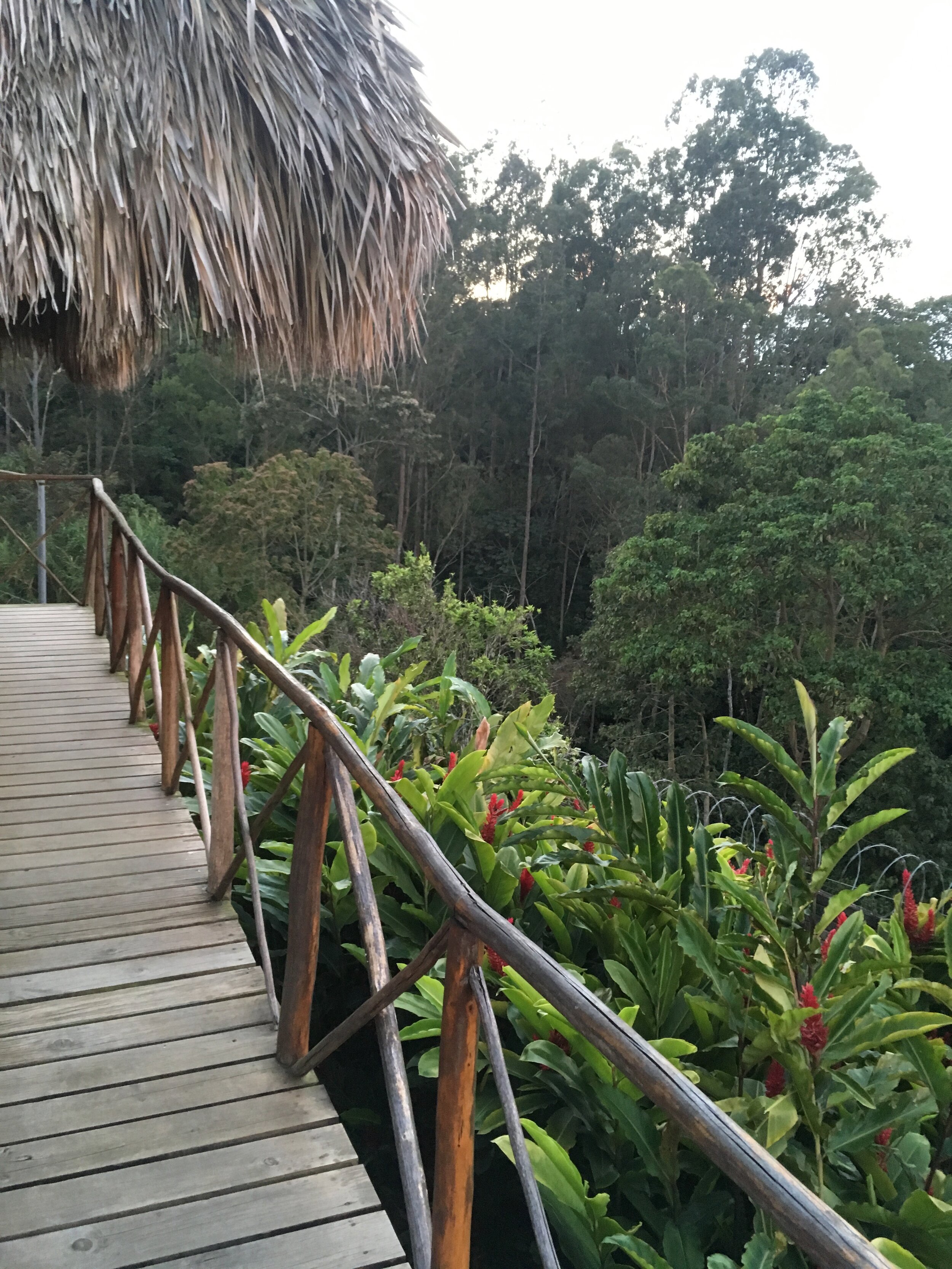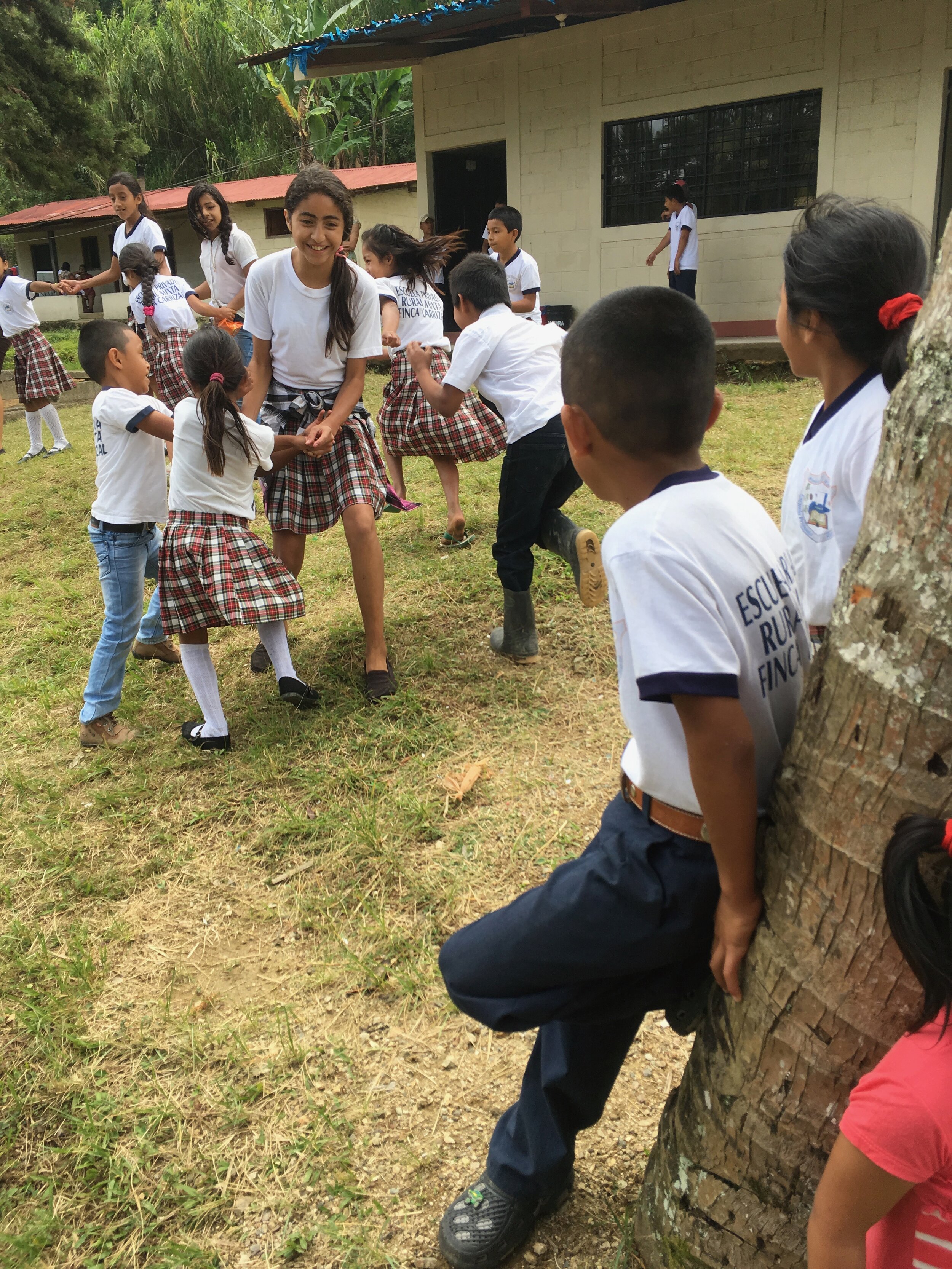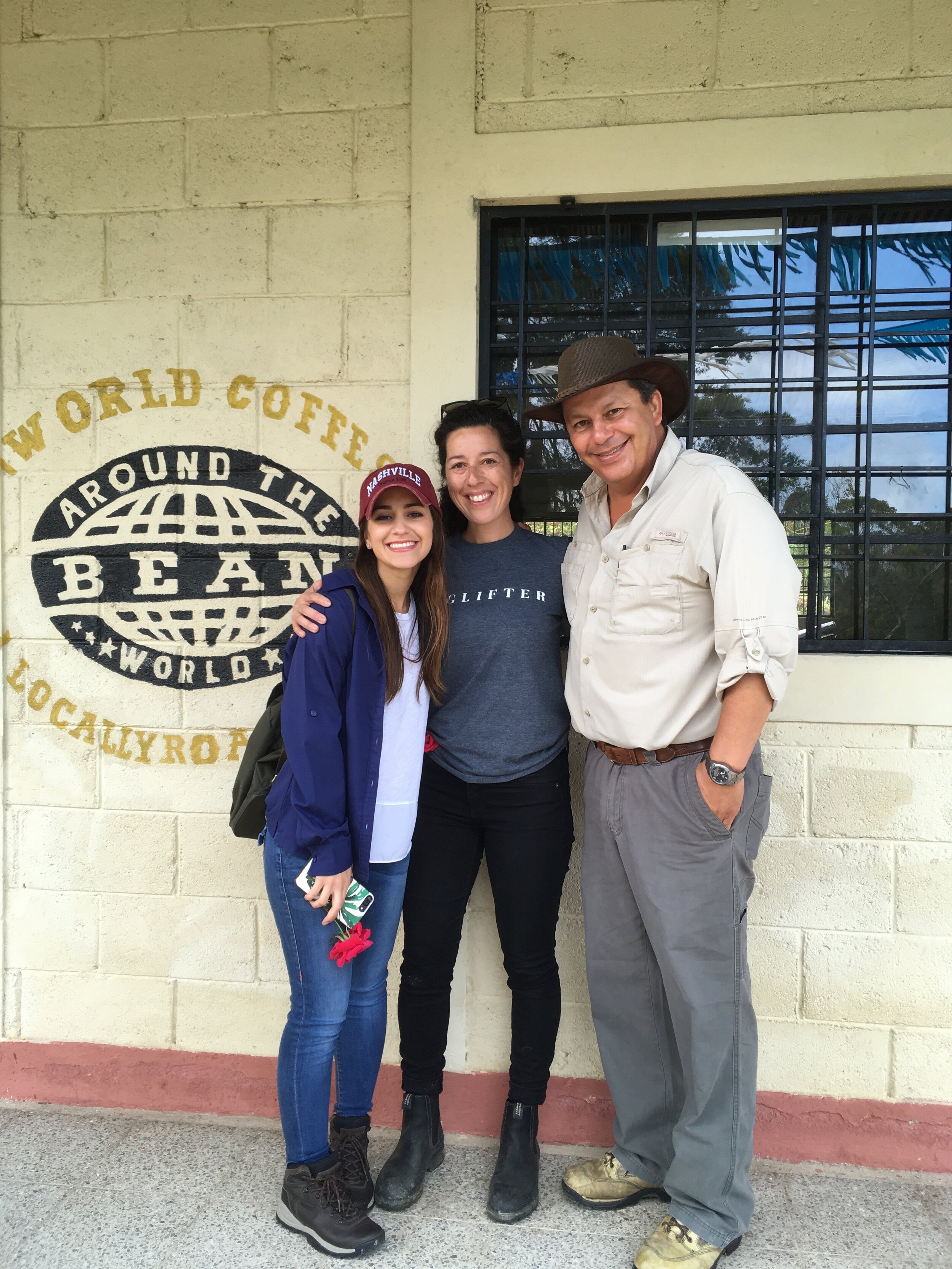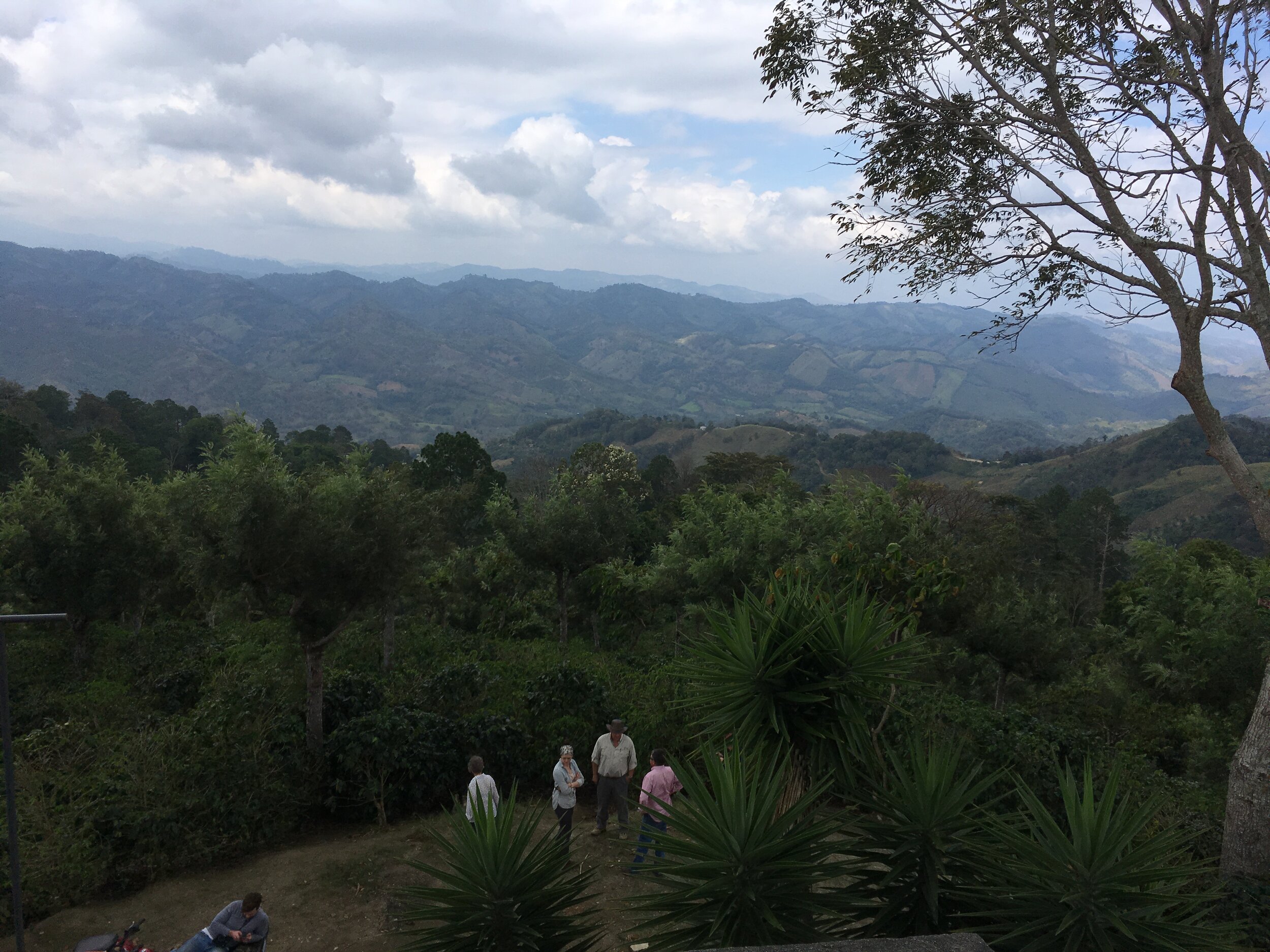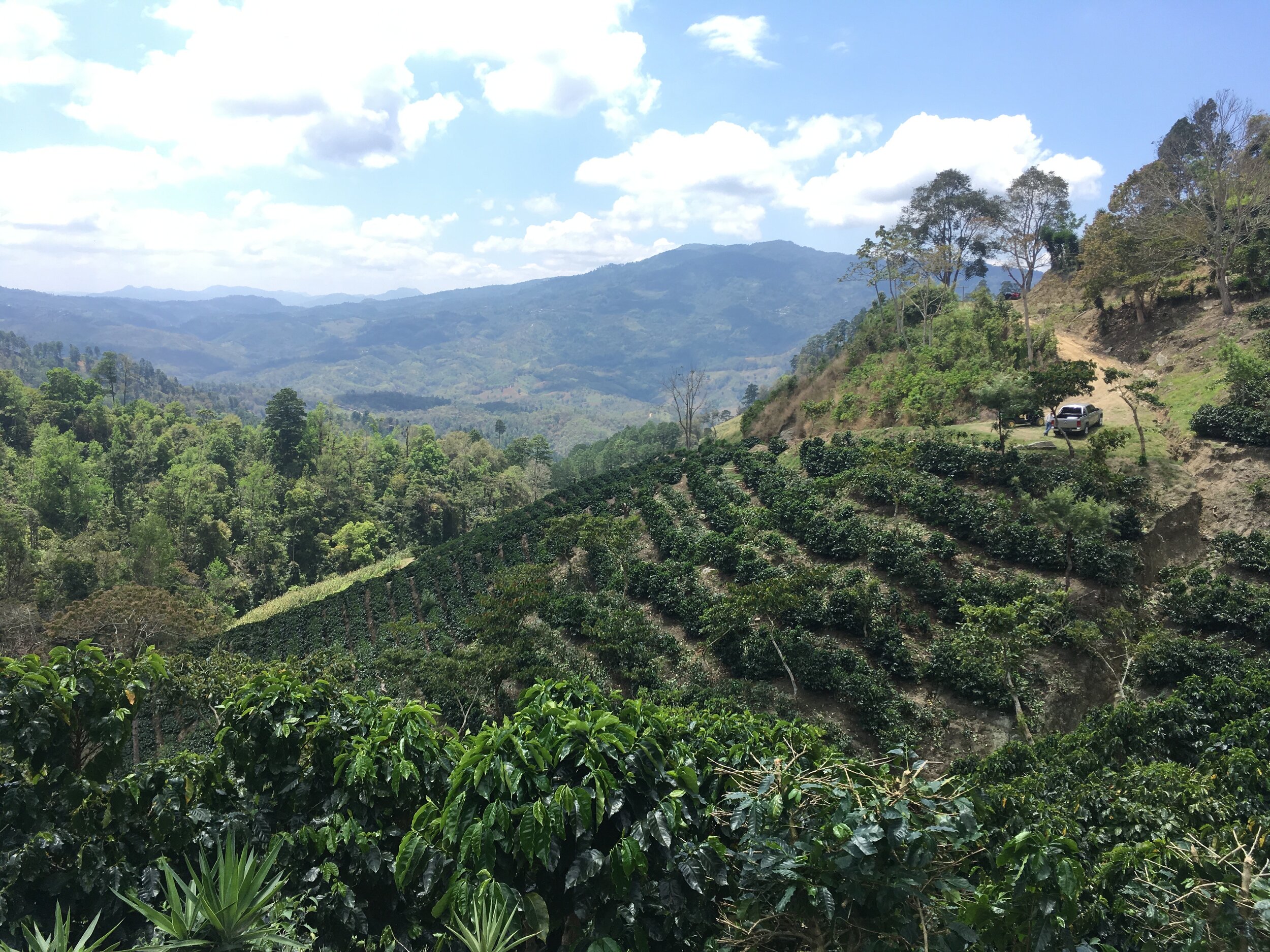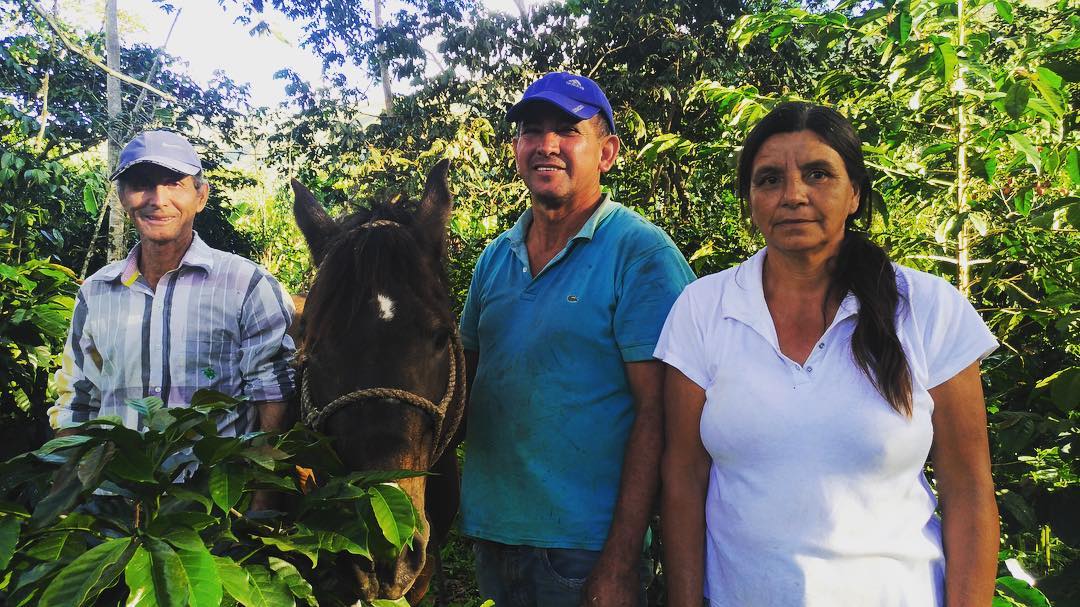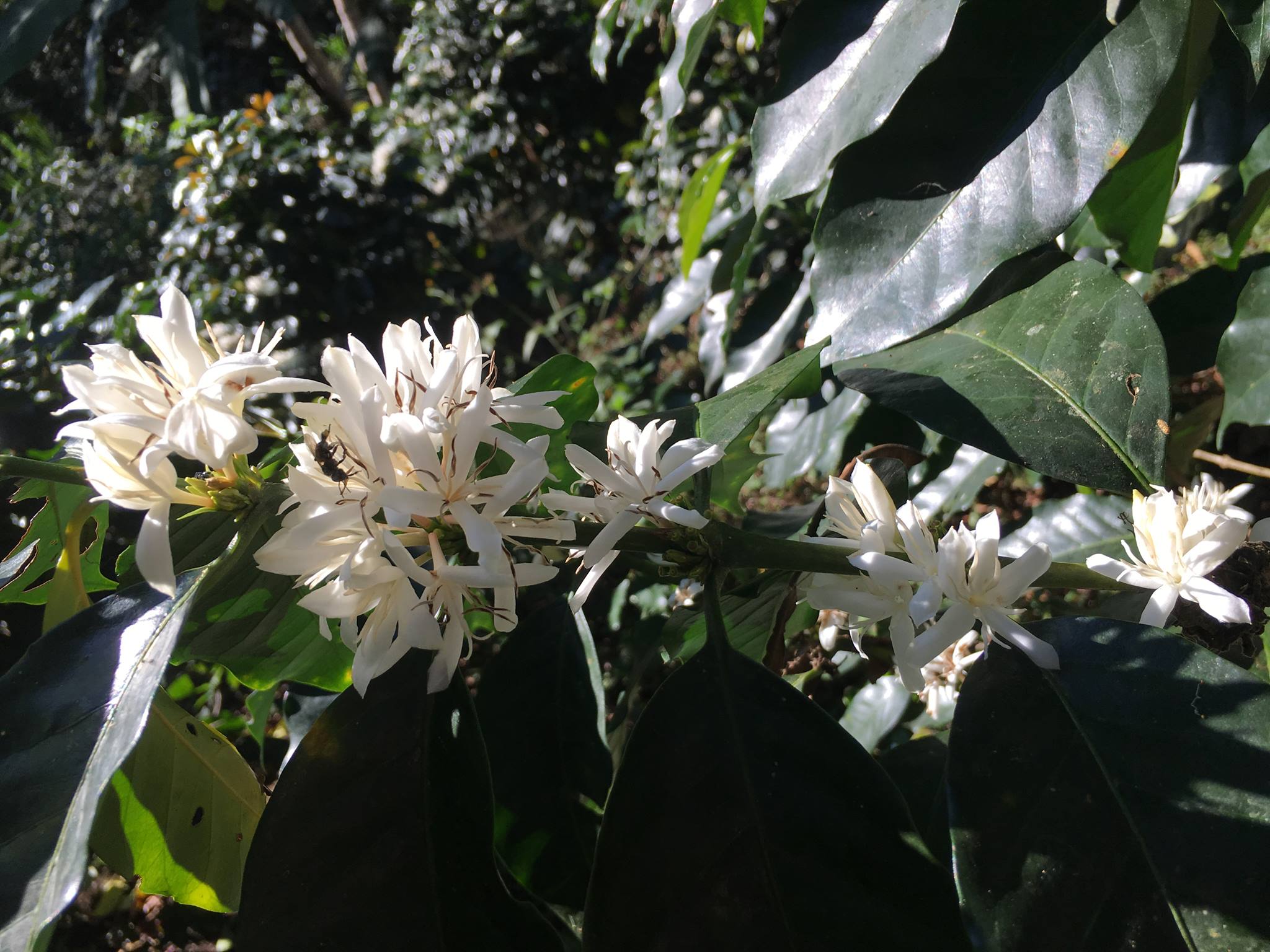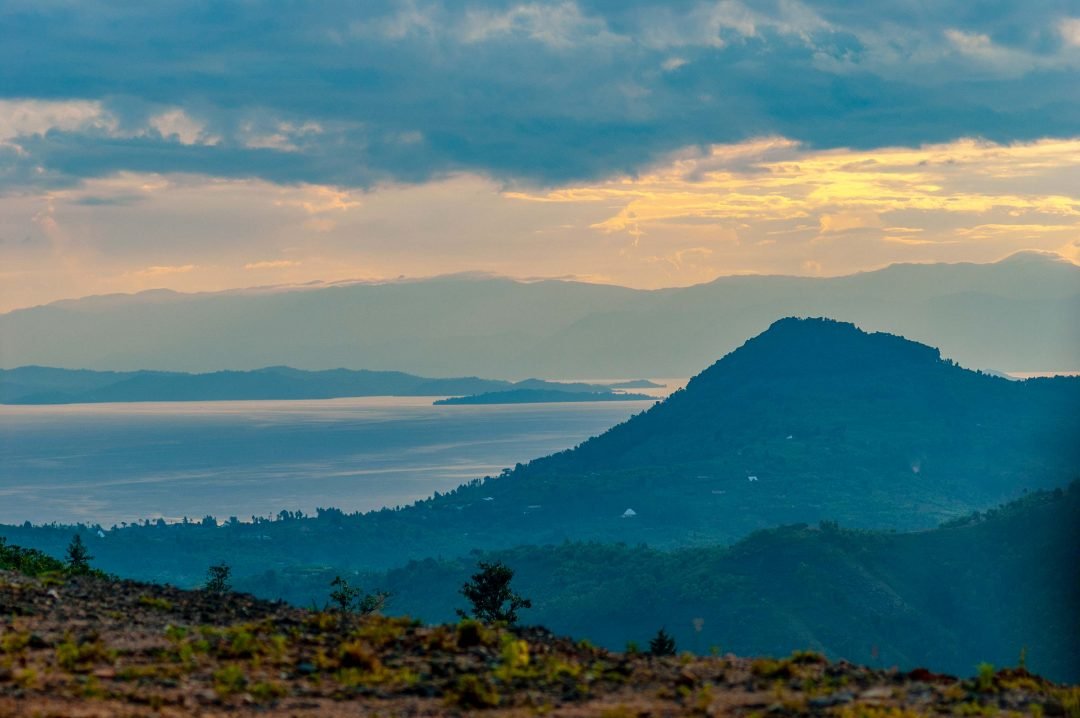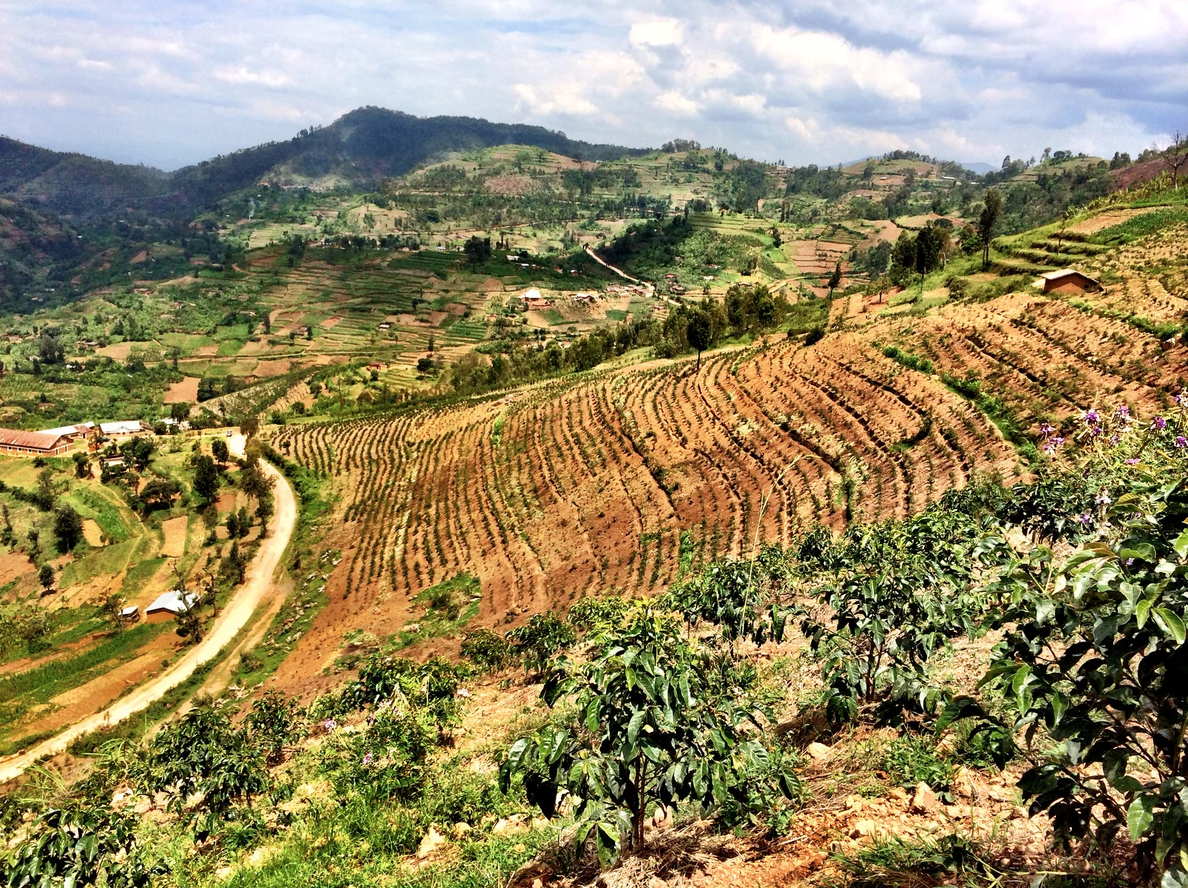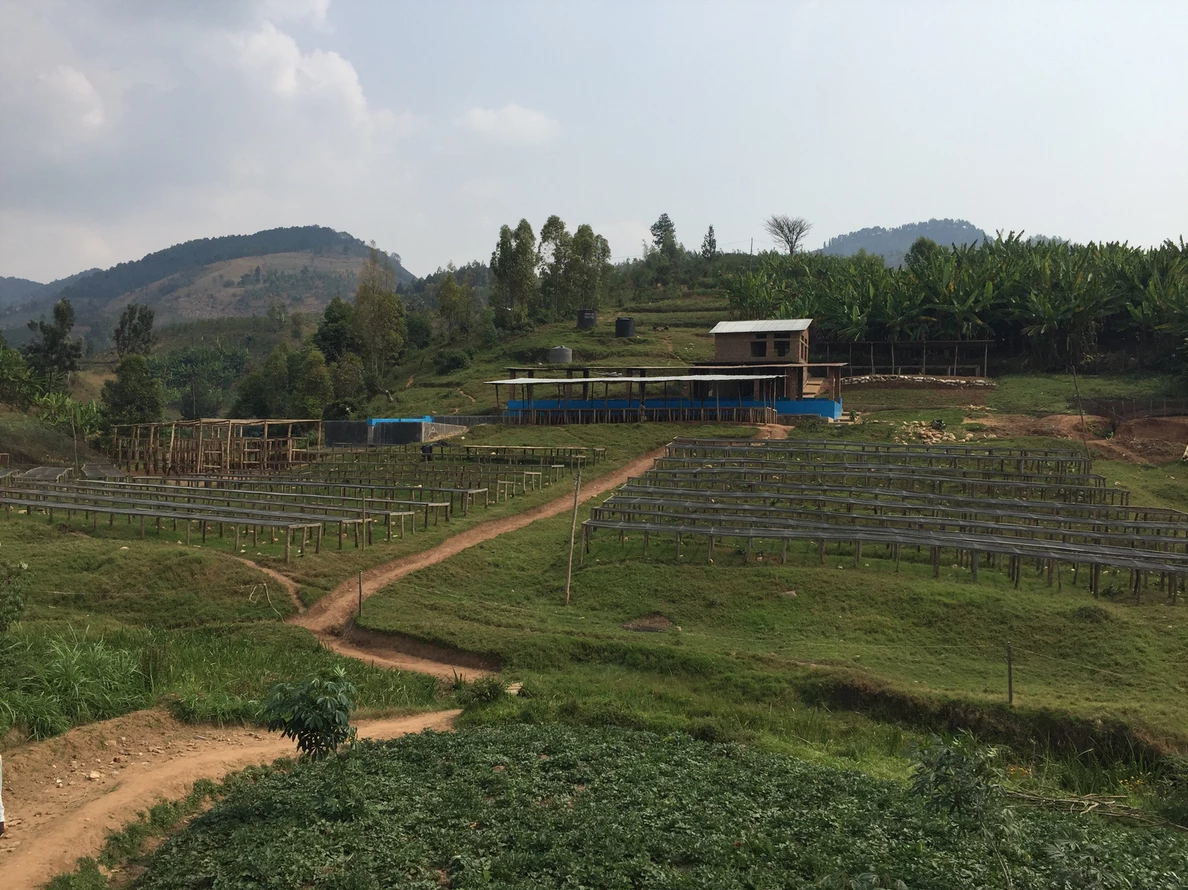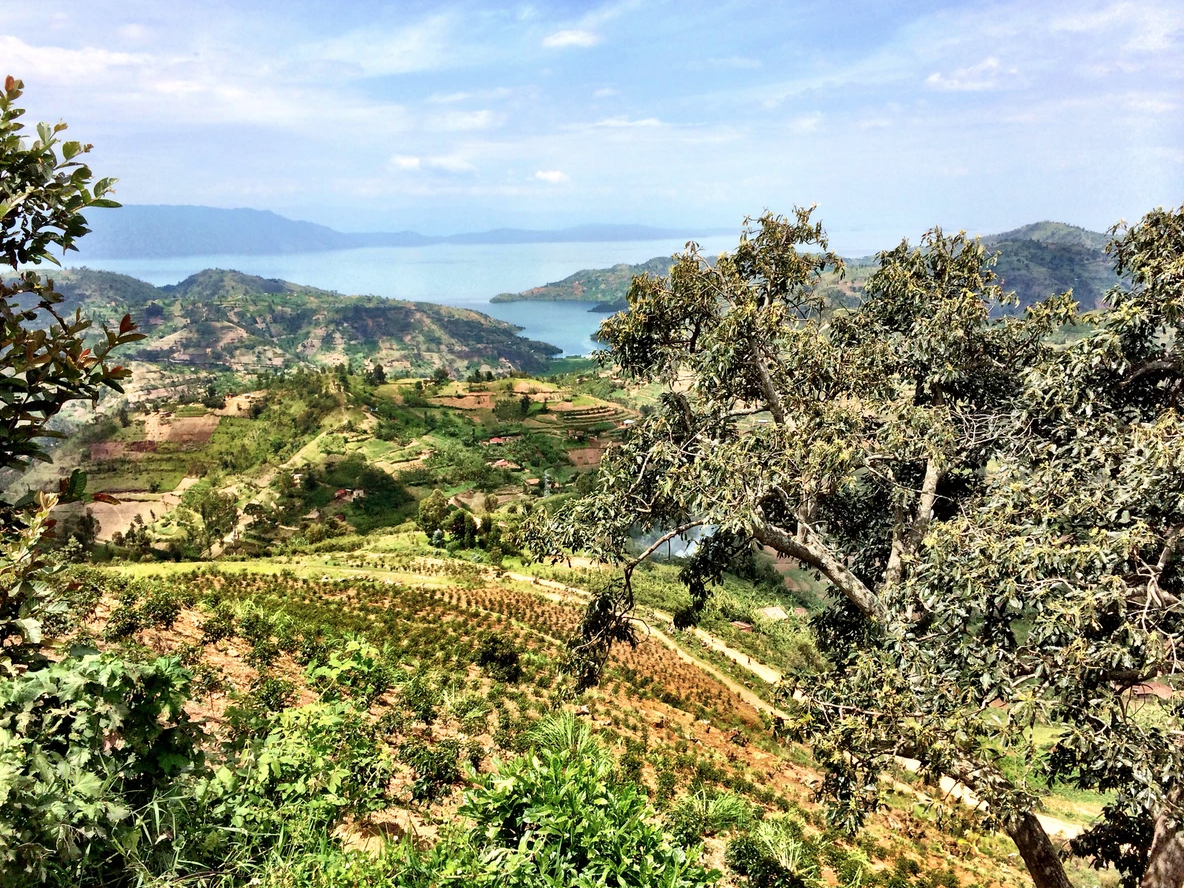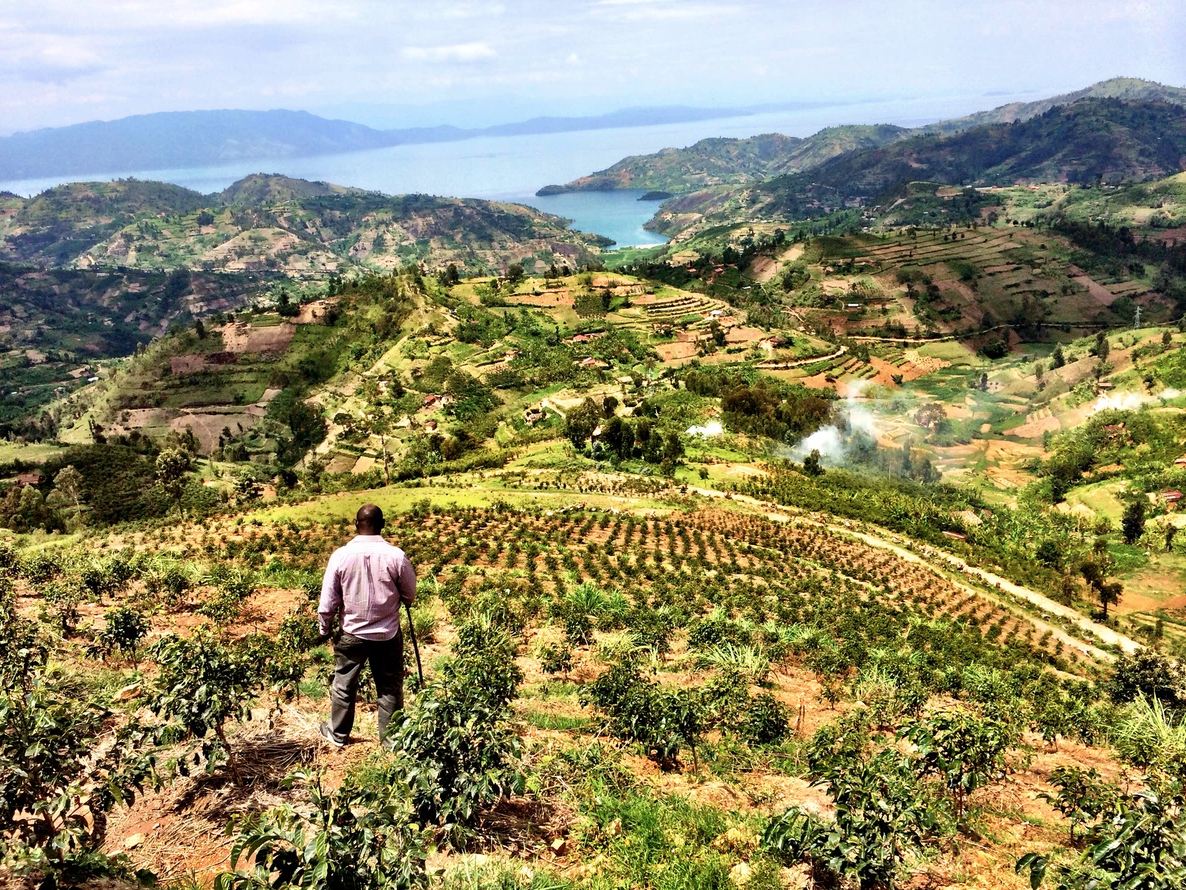Foglifter's Current Single Origin Offerings
We work closely with our coffee importers to carry the coffees we love produced by farmers and co-operatives who care. After decades in the business and on the ground around the world, Emeryville-based Royal Coffee, Vancouver-based Common Goal Coffee, and Canadian importers, Semilla have cultivated these relationships and are pleased to pass along the knowledge they've earned. We are delighted to share these details with you.
Costa Rica Danilo Salazar Natural Process
TRACEABLE - FAMILY-OWNED FARM
BLUEBERRY - GRAPE - PINEAPPLE
Medium Roast
There is nowhere like Costa Rica when it comes to coffee processing and micro-mill innovations. Just ask Danilo Salazar who has dedicated the better half of 50 years perfecting various processing techniques at his 30-acre farm in the West Valley region of Naranjo, within the province of Alajuela.
Much of the recent innovation in processing has been fueled by Danilo’s son, Pablo Andrés. The pair works together using their own micro-mill where cherry selection and drying are meticulously executed. This natural processed coffee is an example of precisely executed methods of drying coffee inside the cherry, which eliminates the need to wash the coffee and greatly reduces the environmental impact, while at the same time, producing an expressive cup profile.
Growers: Danilo Salazar
Region: Naranjo, Alajuela, Costa Rica
Altitude: 1,700 meters
Variety: Caturra, Catuai
Harvest: December - March
Process: Full natural and dried in the sun on patios and elevated tables
El Salvador Finca Colomba Natural Process
SINGLE FARM LOT - FAMILY-OWNED FARM
TART RASPBERRY - SHORTBREAD - LIME ZEST - COCOA
Medium Roast
Finca Colomba has been in the Adolfo family for 3 generations. In 1949, Adolfo McEntee inherited two properties from his family in the Cordillera de Llamatepec, on the slopes of the Santa Ana Volcano. At this time, Don Adolfo began planting Bourbon coffee trees at Finca Colomba and Finca San Francisco. Don Adolfo’s son, José Adolfo McEntee Batlle inherited the farms and continued the legacy before passing down to his son “Fofo”.
After being kidnapped twice during the country’s civil war, José Adolfo emigrated to Miami with family and left the management of the farm to Mario Valiente, owner of Finca Calera. In 2014, Mario Valiente built Colomba’s dry mill ensuring the farm has direct control over every step of the process from farm to export. Great care is taken preparing each coffee for export, with ten women, who are heads of their households, overseeing the final quality check through manual sorting.
The farm permanently employs 80 people and up to 210 people from nearby towns during the picking season. Aware of the need in the surrounding communities, Finca Colomba supports schools in the area, hosts medical conferences to provide accessible healthcare, and distributes toys to children during the Christmas season.
Growers: Mario Valiente and José “Fofo” Adolfo
Region: Chalchuapa, Santa Ana Departement, El Salvador
Altitude: 1,500 meters
Variety: Bourbon
Process: Natural
Decaf Rwanda Nyampinga Women's Coffee Project
WOMEN’S COOPERATIVE - SUSTAINABLE GROWERS PROGRAM - SWISS WATER DECAF
PLUM - SHORTBREAD - LIME ZEST - COCOA
Decaffeinated Medium Roast
“Nyampinga” means “beautiful women, both inside and out.”
This coffee came through the relationship between Swiss Water and Sustainable Harvest, whose Women’s Coffee Sourcing Program seeks to elevate women’s unequal status in coffee production through coffee skills education, advocacy, leadership development, and concrete incentives to improve quality and meet their goals. Nyampinga is also part of the Sustainable Growers program, which provides training in agronomy, market access, and quality control. These programs have contributed to increases in cup scores and market value for the hard-working women of Nyampinga, and have increased the economic opportunities for these women and their families.
The 238-member cooperative also operates its own washing station, where coffee is carefully depulped, fermented, washed, and dried on African raised beds. Hand-sorting is done at each step to ensure top quality—and the results have paid off in the cup.
Growers: Nyampinga Cooperative
Region: Rusenge Sector, Nyaruguru District, Rwanda
Altitude: 1,760 meters
Variety: Bourbon
Process: Washed, Swiss Water decaffeination
Rwanda Baho Blend
COMMUNITY BLEND FROM SMALLHOLDER FARMS - A GOOD WORKS SIP
SWEET DATES - CARAMEL - TOFFEE PUDDING
Medium Roast
After 20 years of working throughout Rwanda for a large export company, Emmanuel Rusatira and family decided to start fresh, on their own. Baho Coffee allows Emmanuel to express his values and push high quality protocols via the operation of six different washing stations. Because the average farm size in Rwanda is less than a hectare and volumes per farmer are extremely low, thousands of smallholder farmers deliver cherry to centralized processing stations rather than individually- owned mills. At these production facilities, Emmanuel's passion for quality and experimentation mean he is both producing clean, natural processed coffees and also pushing the experimental boundaries of the fermentation process.
On the ground, Emmanuel is very proactive with education and outreach, working closely with producers - distributing seedlings, educating on proper growing and picking techniques, giving loans for infrastructure or quality of life investments, and being a positive presence in the community.
As well, the Farmer Field Schools (FFS) system involves grouping farmers that live close to each other and having them elect a representative for their group. This leader attends regular training sessions at the station and returns to teach the group. Through the FFS, producers learn about selective picking, soil conservation, water protection, waste management, and more.
Growers: Smallholder producers situated around the Akegera, Bugoyi, and Fugi washing stations
Region: Bugoyi: Rutsiro District, Western Province. Akagera: Nyamasheke District, Western Province. Fugi: Nyaruguru District - Southern Province.
Variety: Red Bourbon
Harvest: April - June
Process: Washed / Wet
TRANSPARENCY NOTES FROM OUR FRIENDS, SEMILLA:
2022 Rwanda national farmgate price: 420 Rwanda Francs per kilogram cherry.
2022 Baho farmgate price Baho Blend: 650 RWF/kilogram cherry.
* This is 55% higher than the national price paid to producers.
2022 FOT Kigali price to Baho for Baho Blend: $2.95USD/lb.
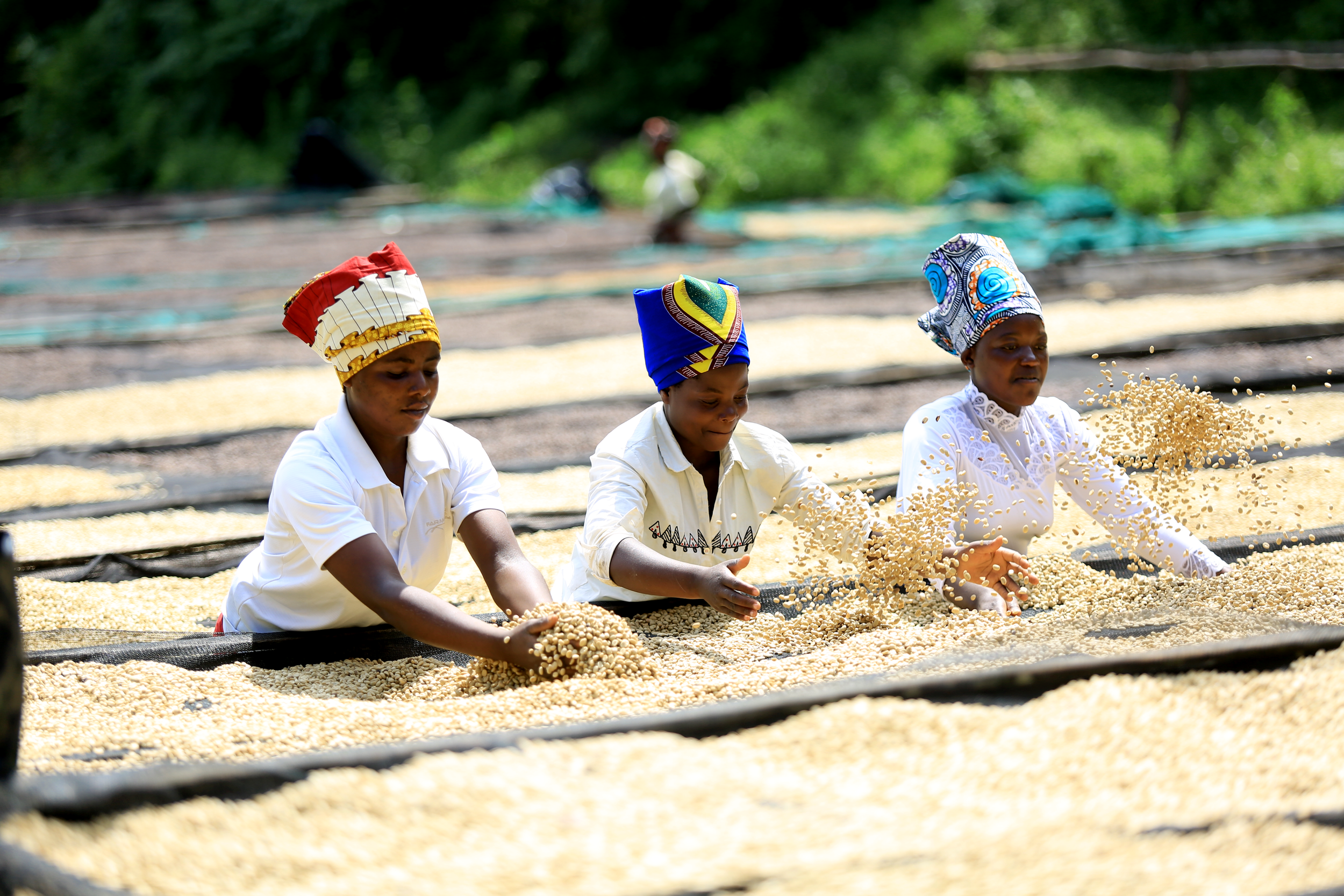
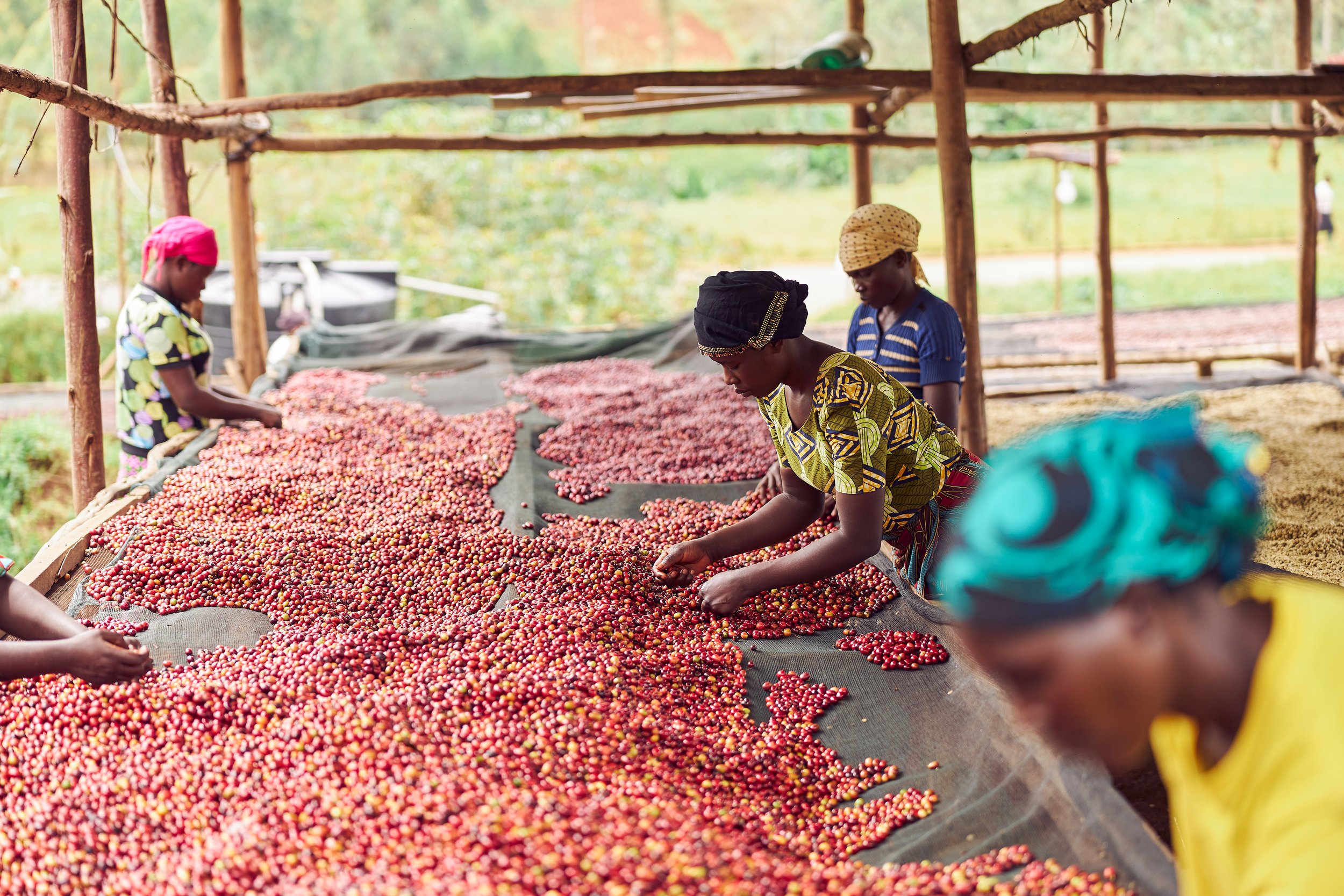
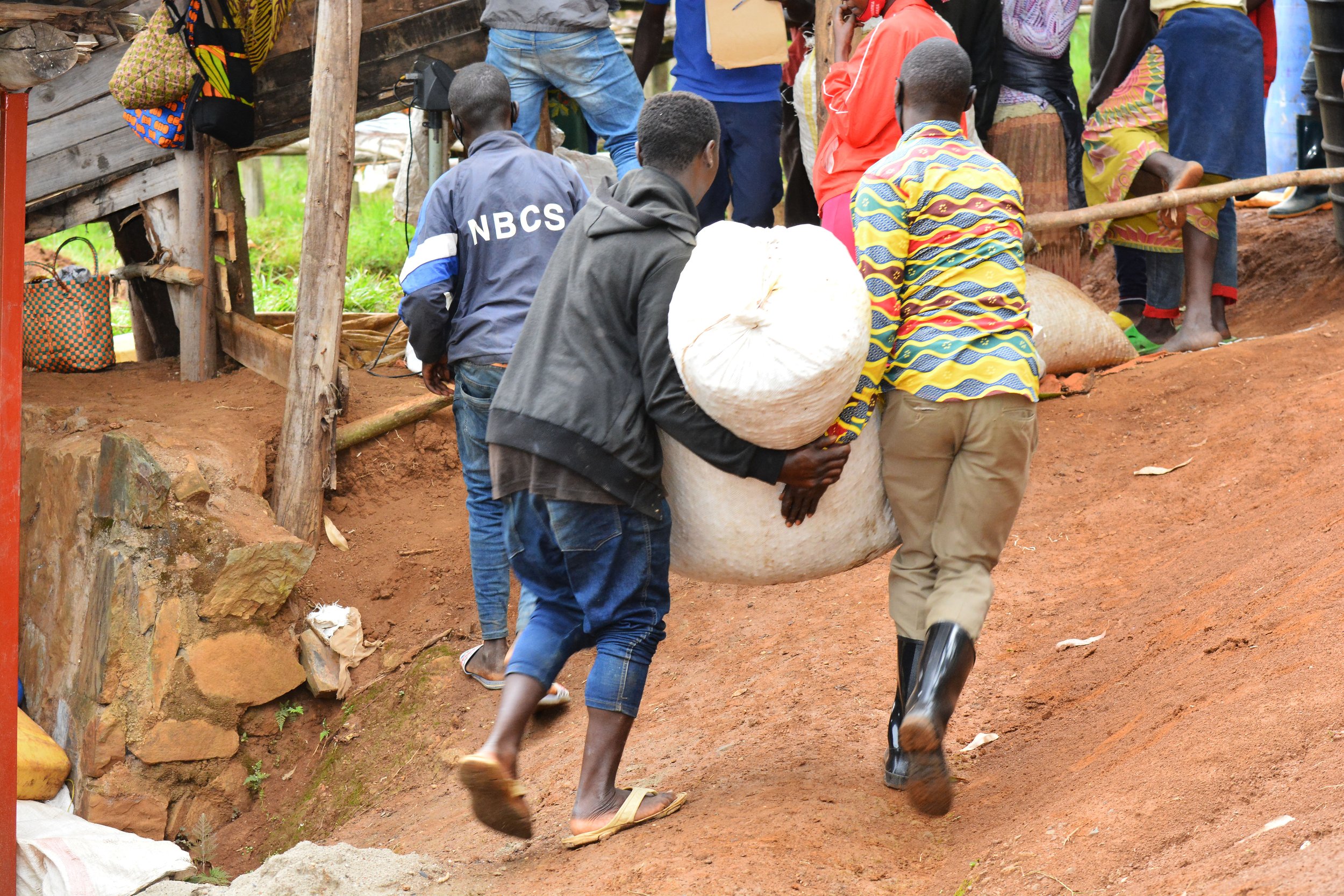
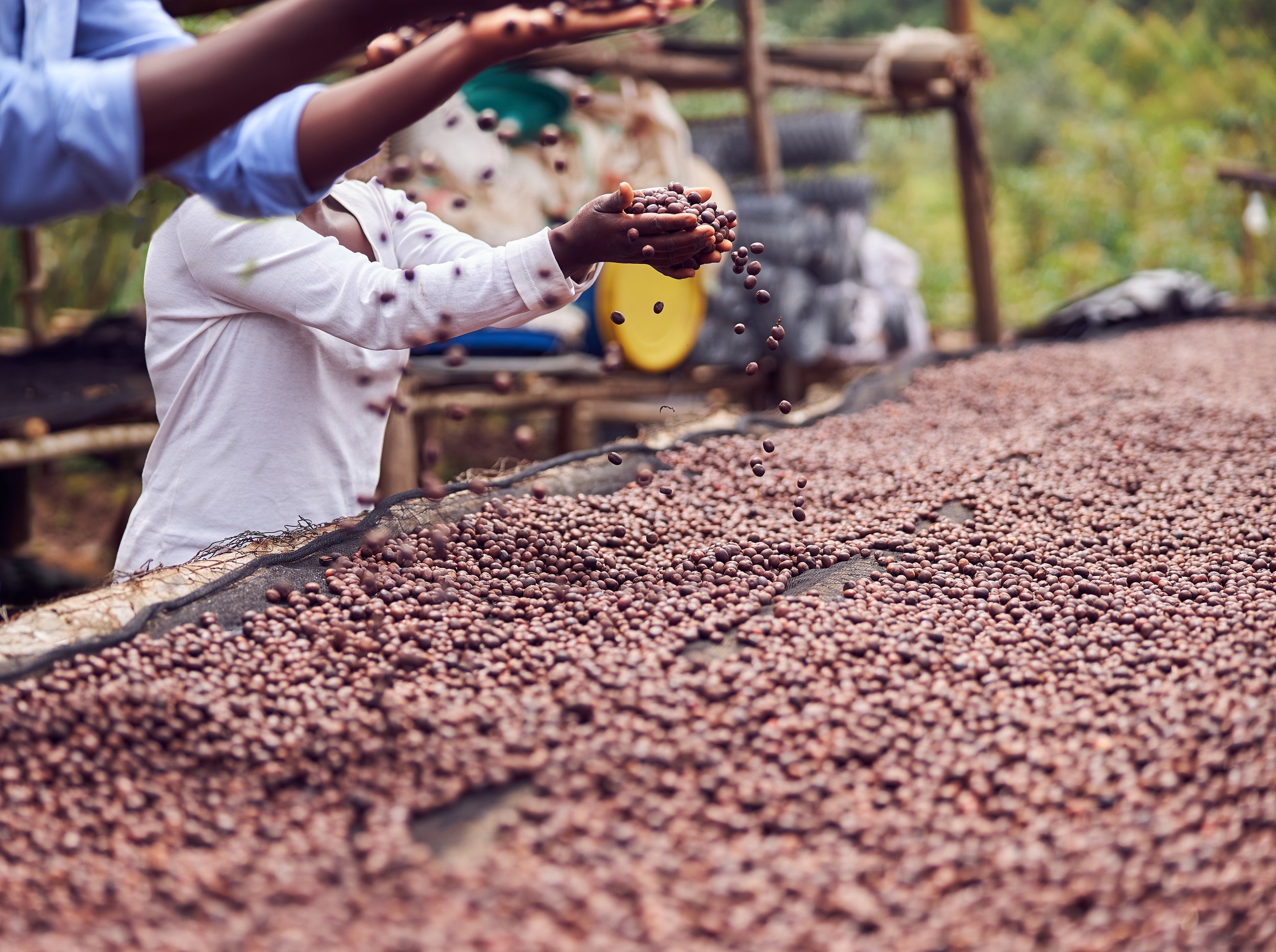
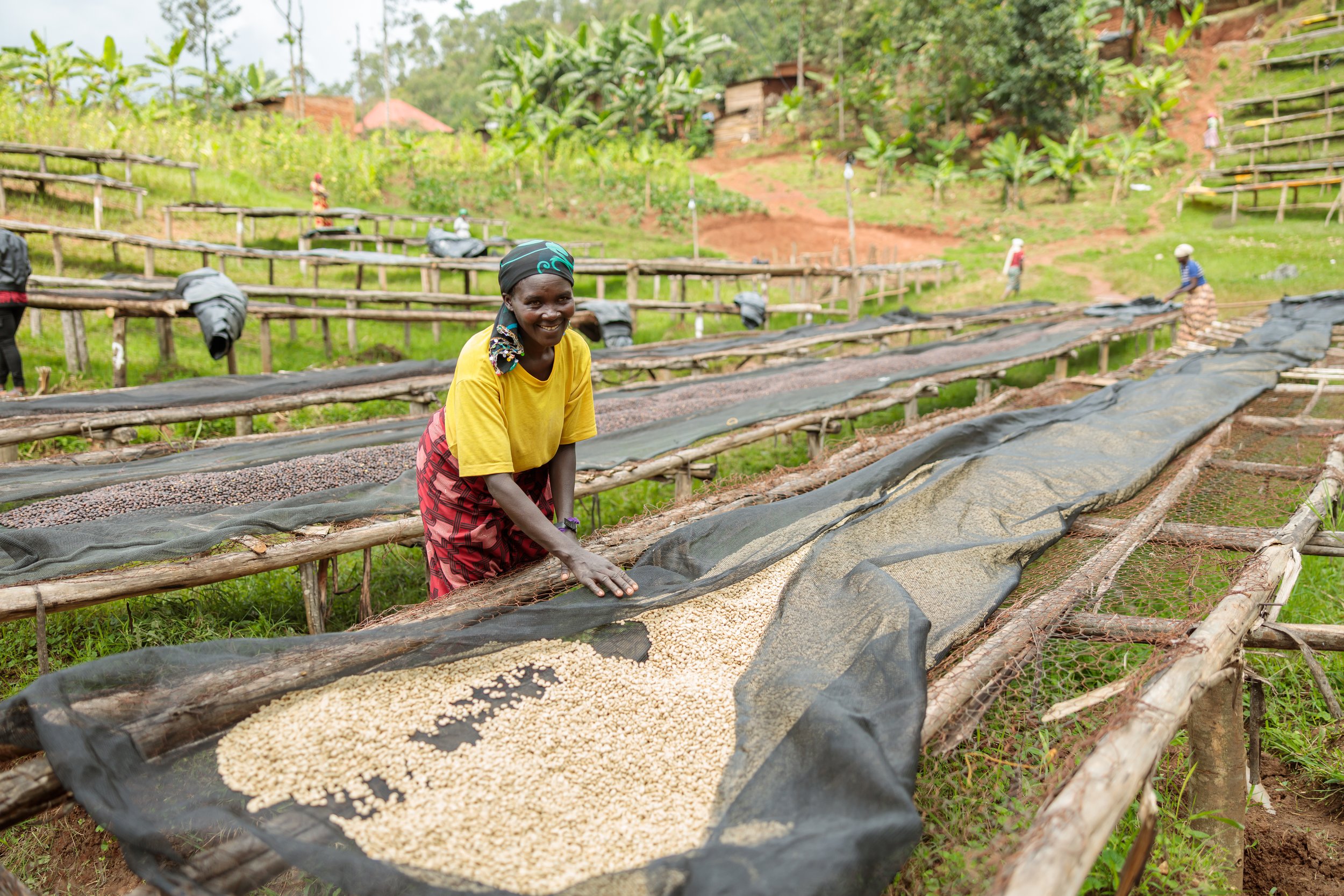
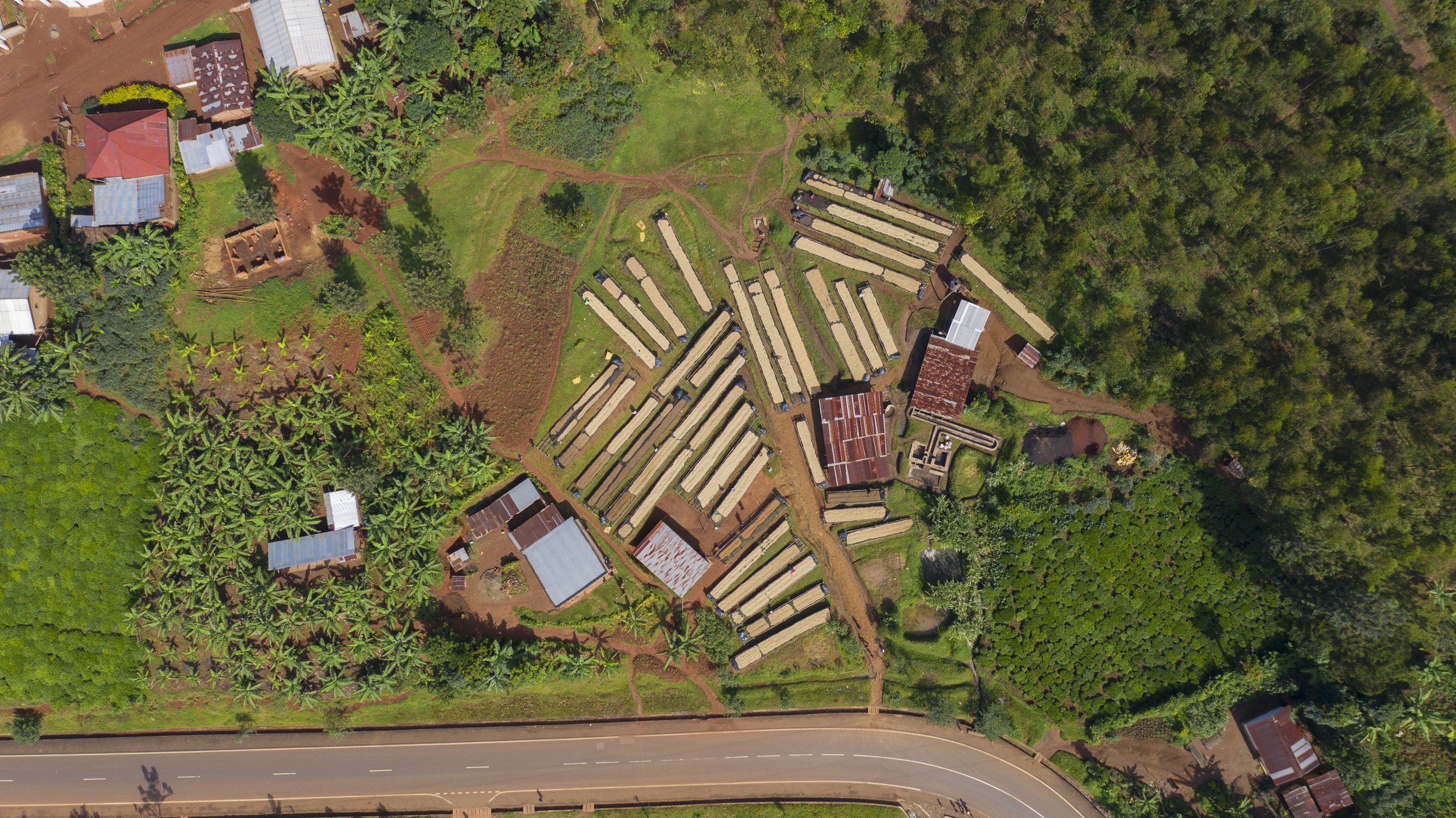
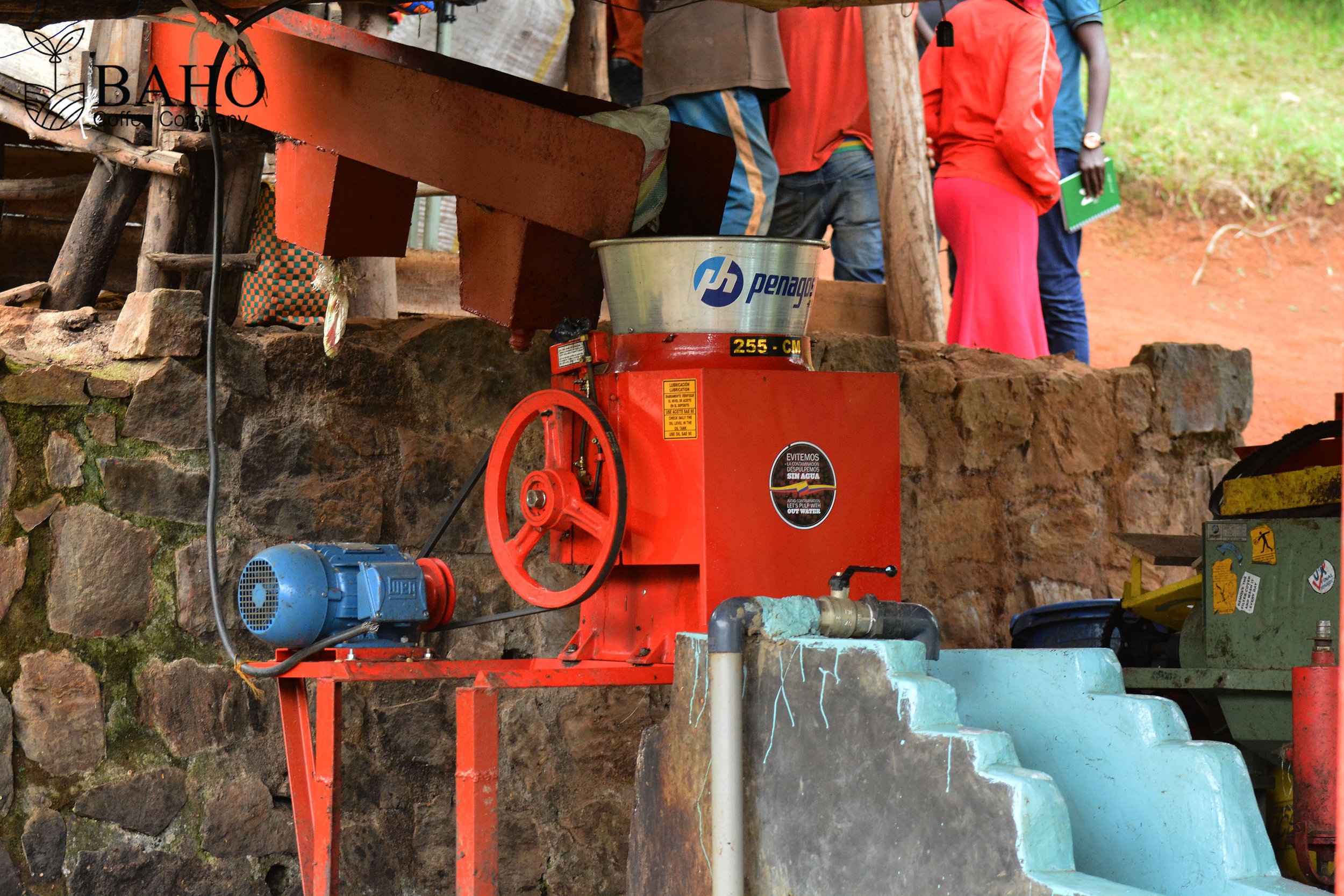
AKAGERA WASHING STATION
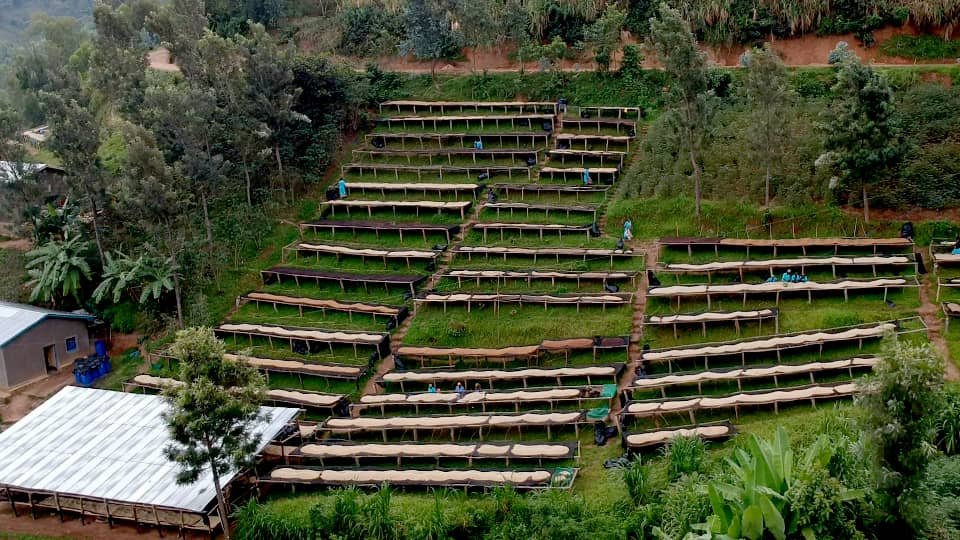
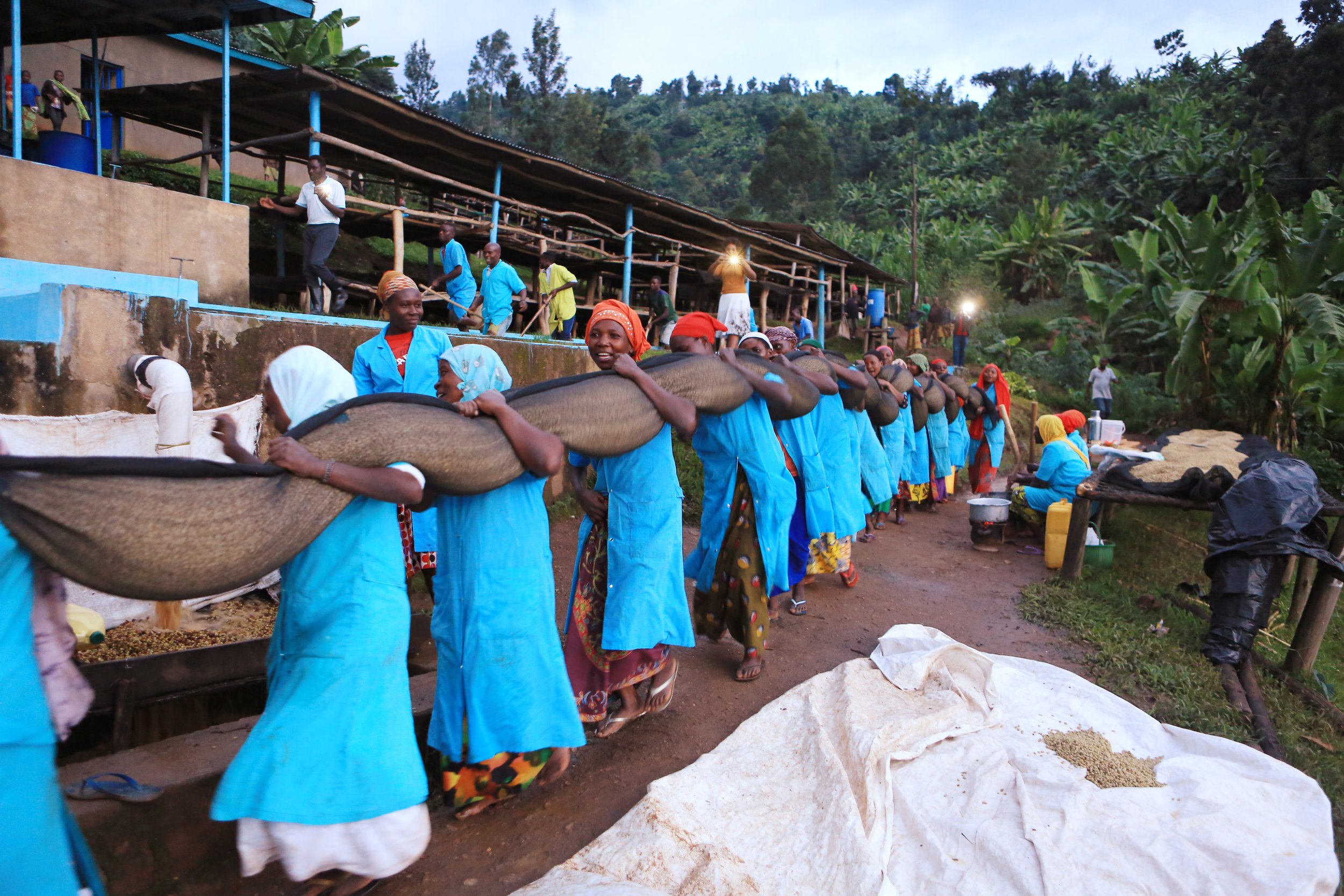
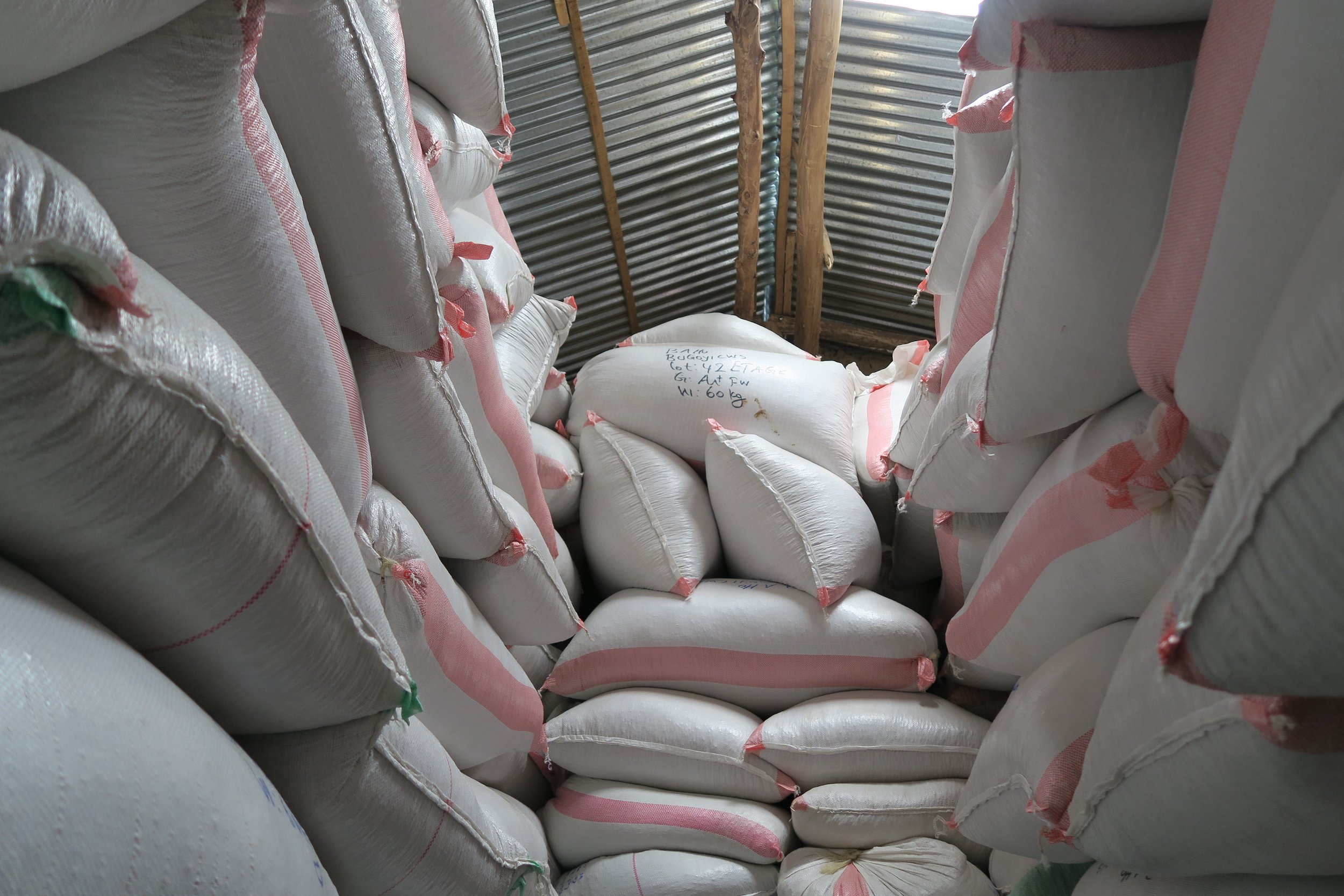
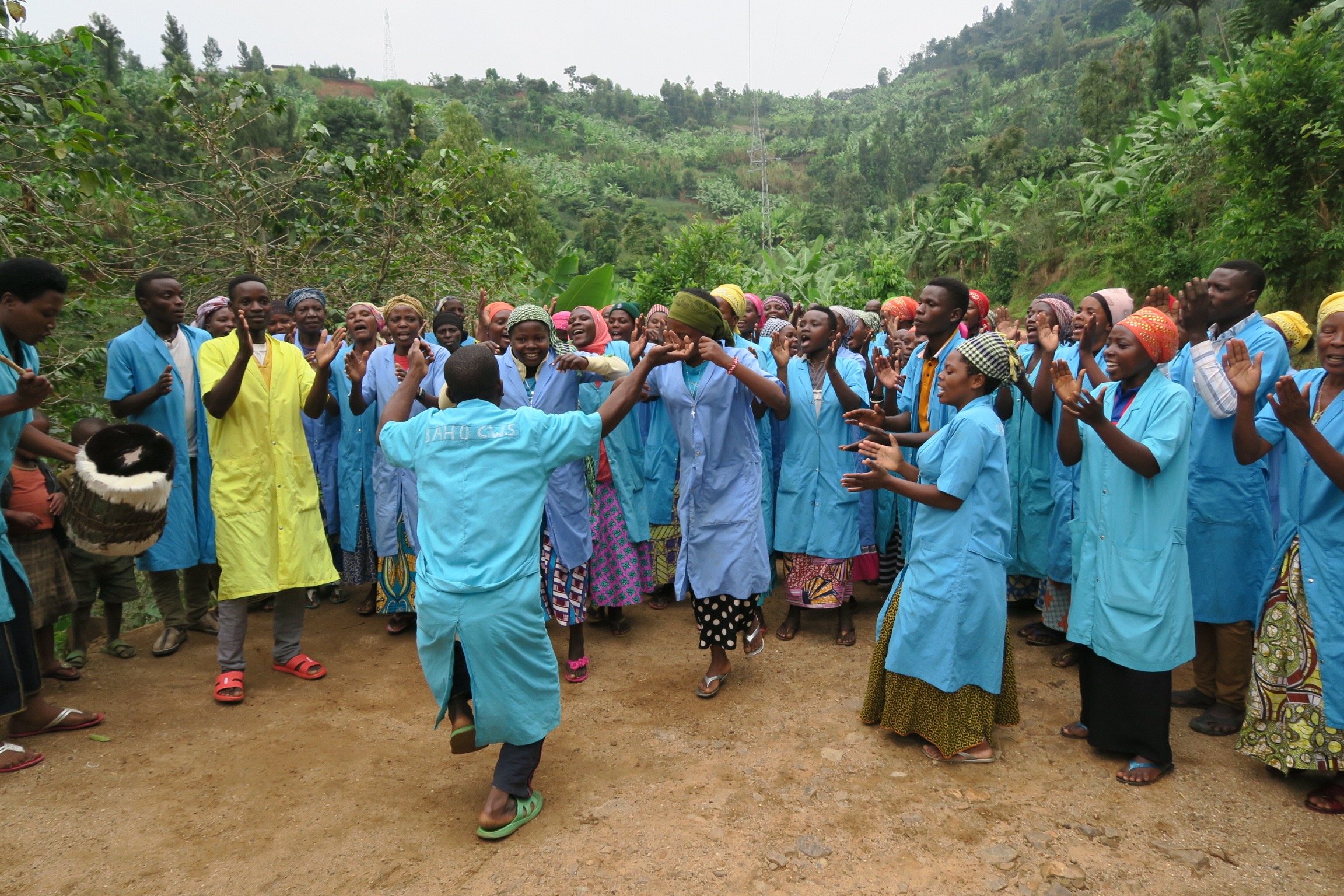
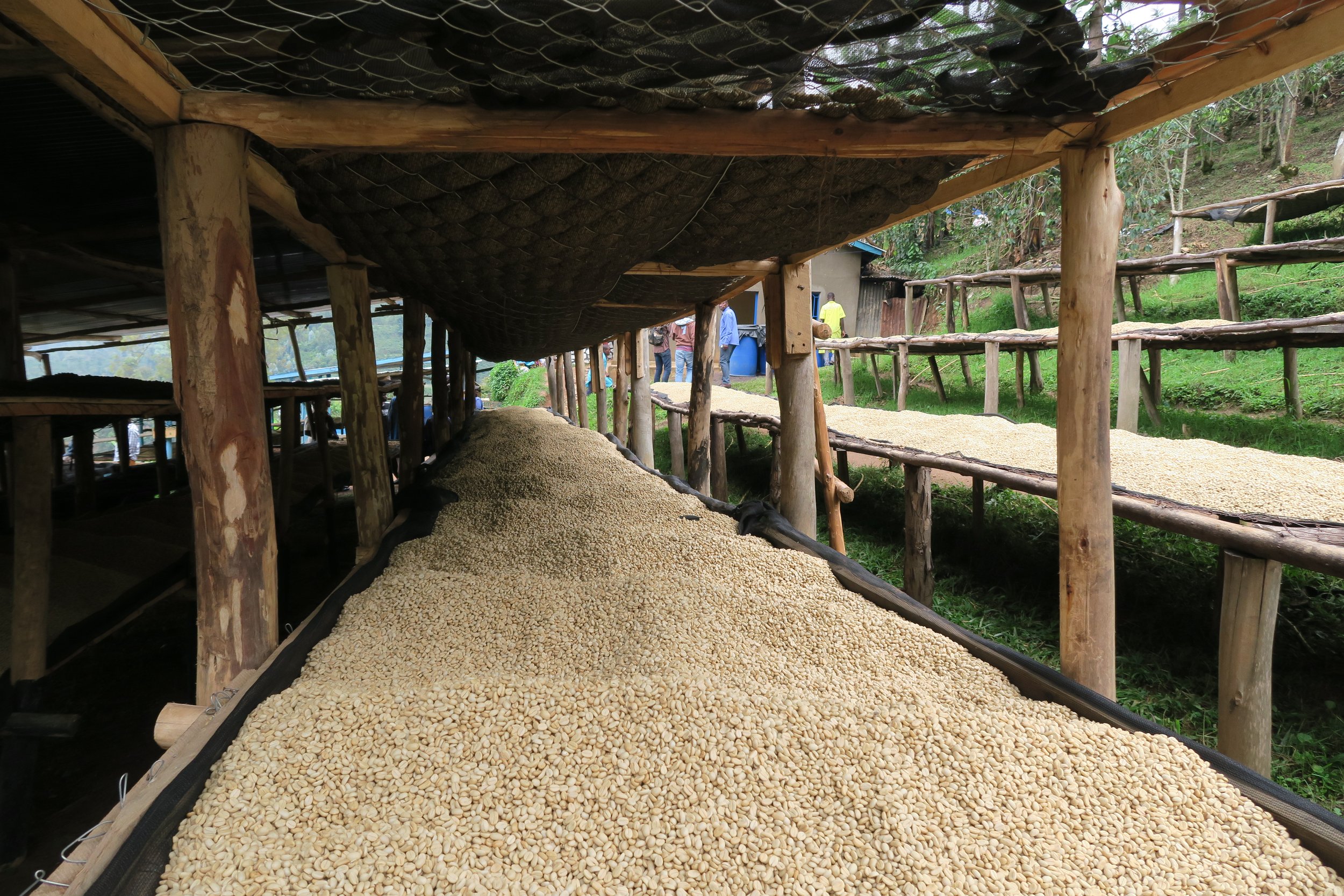
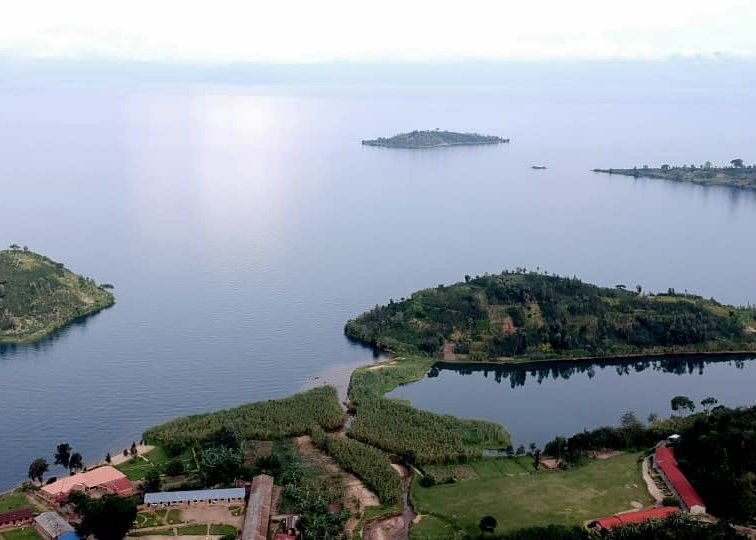
BUGOYI WASHING STATION
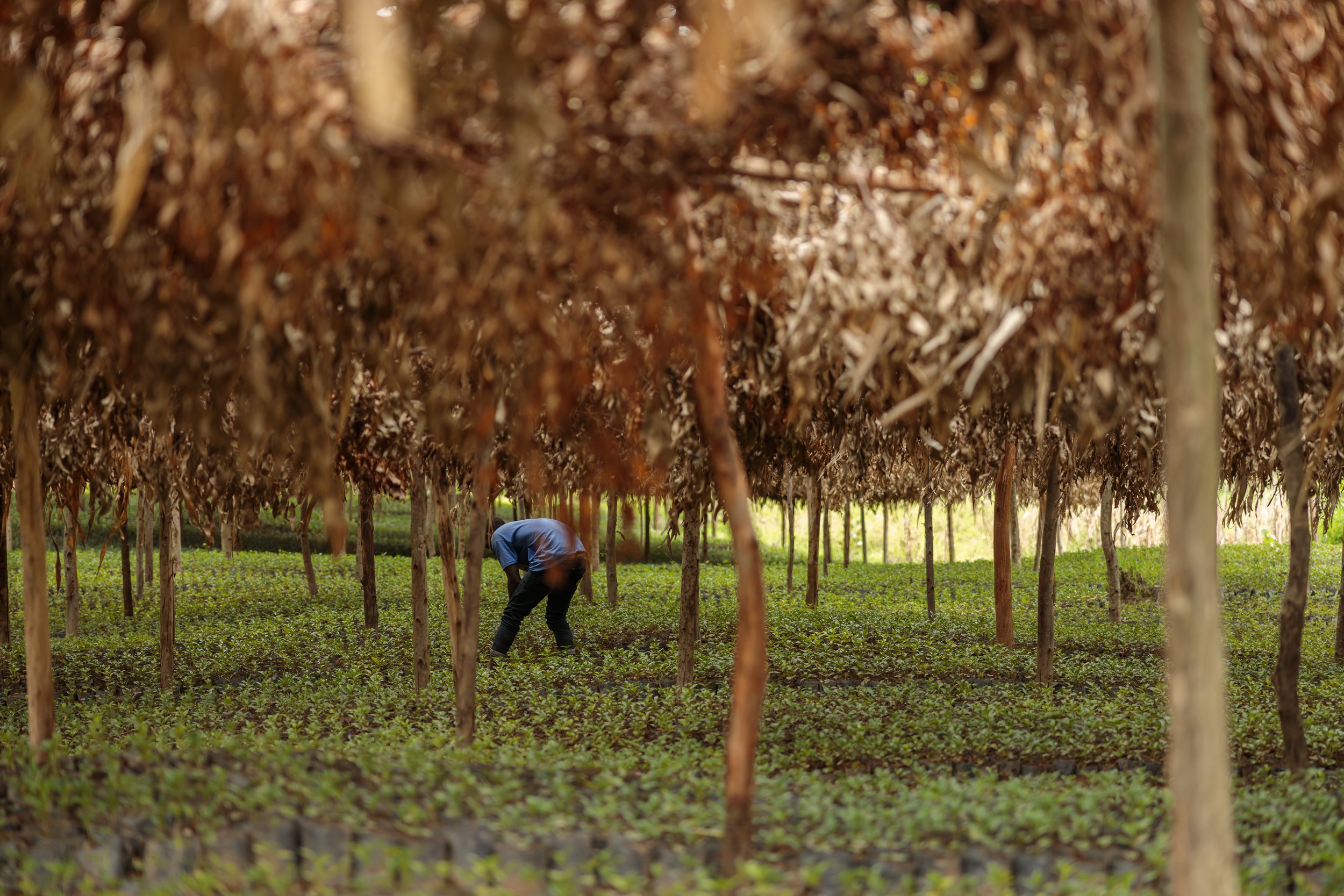

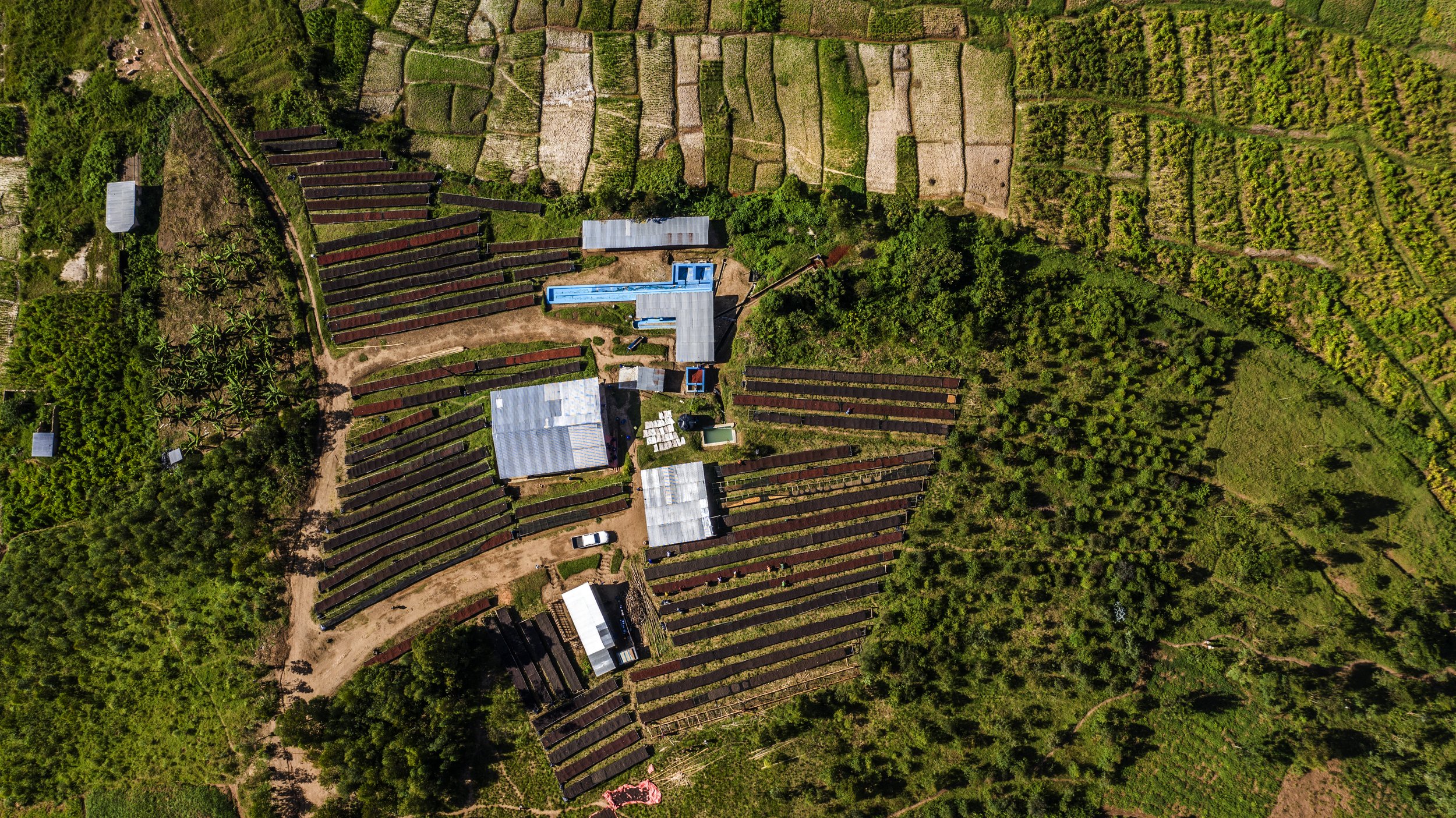

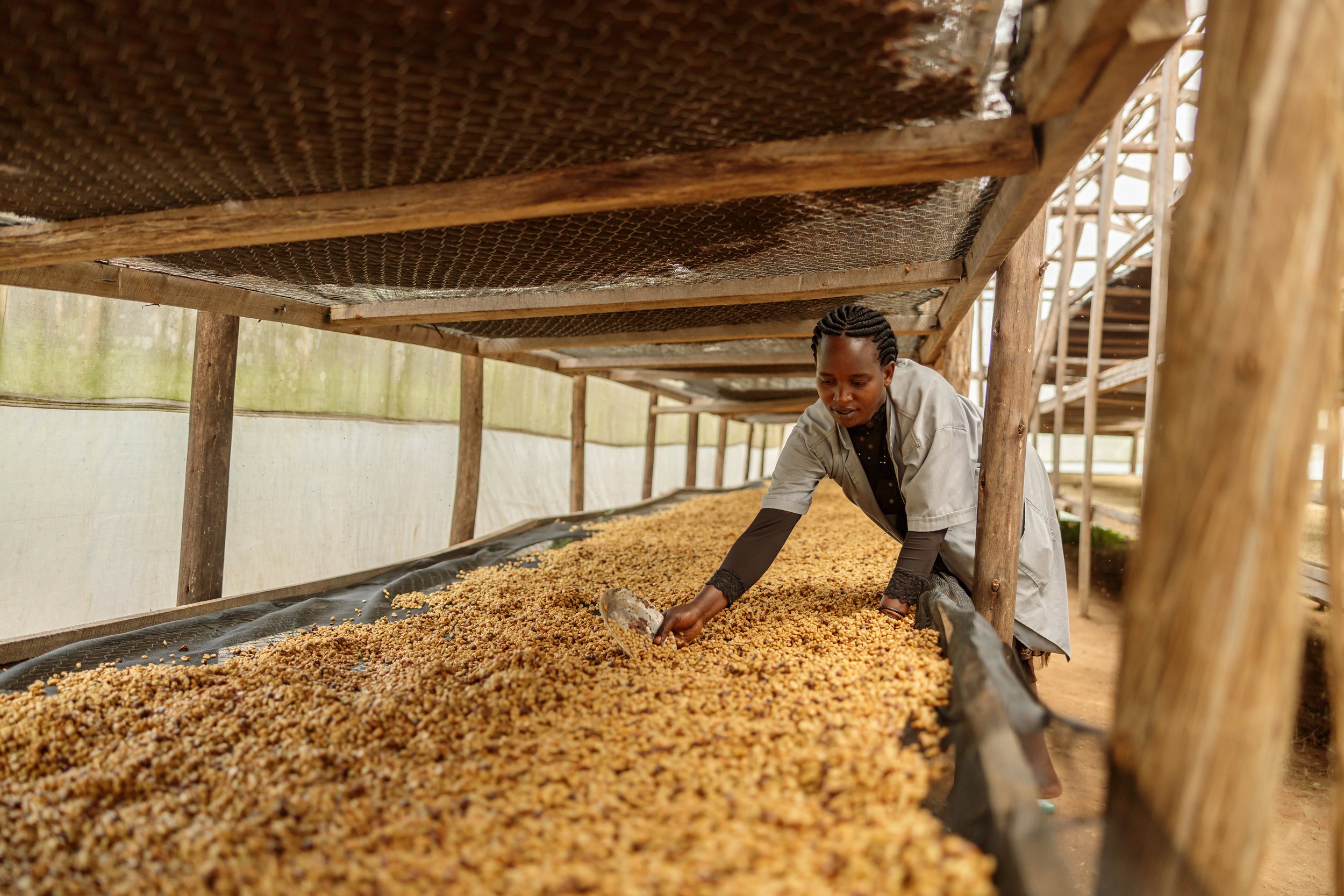
FUGI WASHING STATION
Bali Blue Moon Organic
ORGANIC - SUSTAINABLY PRODUCED USING TRADITIONAL METHODS
HOT CHOCOLATE - LIGHT HONEY - EARTHY
Medium Roast
Bali Blue Moon is named after the hallmark bluish hue of the bean produced from the wet-hulling process called giling basah. The bulk of Bali’s coffee production comes from small family-owned farms where each producer uses a few acres to cultivate coffee alongside citrus trees in the volcanic soils of Mount Agung’s Kintamani highlands.
Producers sort their harvested cherries before de-pulping and fermenting overnight with their own micro-mills. After drying on patios, the coffee takes a detour from the conventional path of processing in other origins. With the giling basah method, the coffee parchment is removed while the coffee still has a high moisture content. This wet-hulling process leaves the coffee bean exposed while drying on patios to a moisture percentage acceptable for export and gives the beans their distinct bluish colour.
Balinese producers continue to maintain a traditional rural lifestyle organized around a Subak Abian - the ecologically-sustainable irrigation systems developed more than 1,000 years ago by Hindu priests who practice Tri Hita Karana (the three sources of prosperity), a philosophy focused on the harmonization between the environment, humans, and God. These traditions are followed in coffee cultivation, which means pesticides and synthetic fertilizers are never used.
Growers: Producers organized through Subak Abian (SA) a traditional structure of farmer organization in upland Bali
Region: Kintamani Highlands of Central Bali, Indonesia
Altitude: 1,200 – 1,600 meters
Variety: Bourbon, (S795 & USDA 762) Typica, and Catimor
Harvest: May - October
Process: Hand-picked, wet-hulled, two-step sun drying on raised beds
Certification: Organic
Ricardo Zelaya Santa Clara Honey Process
PRODUCER DIRECT COFFEE - SANTA CLARA SCHOLARSHIP PROGRAM
CHERRY - DUTCHED COCOA - MARZIPAN
Medium Roast
We first came across Ricardo's coffee in 2007 through our previous shop, Bean Around The World - Main & 20th. It is a privilege to keep this relationship thriving today. This particular coffee was selected with Katia Zelaya's assistance during our trip to Antigua and Finca Carrizal in 2018 and it’s been a customer favourite each season since then. Read more about our visit and your contributions to their Santa Clara Scholarship Program - an ambitious, evolving program that is creating transformative opportunities for the people who produce this coffee.
This coffee is sourced from Finca Santa Clara, the Zelaya estate farm established in 1930 in Antigua where meticulous rows of shade-grown coffee plants work their way up the mountainside to an altitude of 1800 masl., offering pristine growing conditions for a range of varieties as well as breathtaking views of the city and its surrounding volcanos.
The honey process of allowing the washed coffee to ferment and dry with its sticky, sugary mucilage intact imbues the beans with warmth and deep sweetness while maintaining a pleasant acidity and clean mouthfeel. This year, the Zelaya family invested in a new depulper that does not use water leaving more mucilage on the bean resulting in a sweeter, fruitier, cleaner cup. You will find all the notes you’ve loved in the past. We are tasting bright cherry, mellow, earthy chocolate and the aromatic sweetness of marzipan. It is a thrill to share this coffee with you this year.
Growers: Ricardo Zelaya Coffee
Region: Antigua, Guatemela
Altitude: 1,550 - 1,890 meters
Variety: Borboncito
Soil: Volcanic soil
Process: Honey Process - depulped, dried on raised African drying beds.
Ricardo Zelaya Finca Carrizal
PRODUCER DIRECT COFFEE - SANTA CLARA SCHOLARSHIP PROGRAM
MILK CHOCOLATE - PRALINE - RAISIN
Medium Roast
We first introduced our customers to Ricardo Zelaya's coffee back in 2007. It is a privilege to delve deeper into this relationship today through coffee and philanthropy. Finca Carrizal has a very special place in Ricardo’s heart as it was his first coffee farm. In 1986, at just 21 years old, he bought his own piece of land right next to his family’s farm. Here he has had the freedom and infrastructure to experiment using everything learned in his studies and on the job - from agronomic practices to building his first wet mill.
To this day, Finca Carrizal houses the nurseries that supply the four other award-winning farms Ricardo owns and manages. The region’s significant rainfall and nutrient-rich soil composition are ideal to cultivate seedlings that grow strong and perfectly suited to transportation. Finca Carrizal is the most difficult Zelaya farm to access - located in remote, northwestern Guatemala. Electricity only arrived 10 years ago. On our farm visit, we were touched to spend a morning at Escuela Privada Finca Carrizal, a school built by Bean Around The World in 2007, that has since seen hundreds of rural students receive a meaningful education that would have otherwise never been accessible to them.
Growers: Ricardo Zelaya Coffee
Region: New Oriente, Guatemela
Altitude: 1,000 - 1,200 meters
Variety: Bourbon, Caturra, Catuai, Villa Sarchi, Pacas
Process: Washed, patio-dried.
Peru Norte Organic Amazonas
ORGANIC - BIRD-FRIENDLY - SMALL-SCALE PRODUCERS COOPERATIVE
DEMARERA - MILK CHOCOLATE - LEMON
Medium Roast
MOLASSES - MILK CHOCOLATE - CAMPFIRE APPLES
Medium/Dark Roast
This is good coffee. The farmers that produce it employ strict quality control systems - from initial planting to harvesting to environmental conservation across their farms. United in a cooperative, Asociación de Productores Cafetaleros Selva Andina, the producers are able to conceive of and participate in regular training sessions, funded by coffee sales and by organizations such as the World Bank, to build upon their infrastructure and implement industry-standard best practices.
In keeping with their environmental conservation philosophy, this coffee is grown shaded by native trees with heights ranging from12-30 m. in soil rich in organic matter and naturally-occurring minerals. The cherry shells left over from production are used to create an organic compost that further enhances the acidity of the soil.
All told and evident in the cup, the members of Asociación de Productores Cafetaleros Selva Andina have earned their international reputation for excellence in coffee.
Grower: Perunor and Asociación de Productores Cafetaleros Selva Andina
Region: Amazonas and Cajamarca, Peru
Altitude: 1250 – 1800 meters
Variety: Bourbon, Caturra, and Typica
Harvest: April - September
Process: Fully washed and dried on patios
Certifications: Organic, Bird-friendly
Sumatra Takengon Mandheling Organic
ORGANIC
MEDJOOL DATES - WHISKEY - EARTH
Dark Roast
Founded in Aceh in the 1980s, PT. Raja Putra Manggala started out as a one-man business by a local trader named Ismail Bahagia. Over the years, Ismail has developed his knowledge and skill for bringing quality-produced coffee to market by establishing longterm working relationships with local farmers to better understand the nature and challenges of homegrown production. Together, they have tackled many of these challenges and continue to flourish.
Raja Putra Manggala has always been a closely-knit family business committed to the improvement of the lives of our farmers - investing heavily in women's education and health within the community. The cooperative takes their premiums and also invests in small tools and water systems within their farmer cooperative to ensure clean water is more conveniently located to them for processing. Giling Basah (wet hulled) translates to "wet grinding" and is considered semi-wash and semi-dried process wherein the coffee’s protective layers have been stripped leaving an attractive environment for enzymes and sugars to absorb and help create the earthy, tobacco and chocolate flavours you love in Sumatra coffee.
Growers: PT. Raja Putra Manggala
Region: Takengon, Aceh province, Indonesia
Altitude: 1,200 meters
Variety: Catimor and Typica
Process: Traditional Giling basah wet-hulling and sun-drying.
Certifications: Organic
Rwanda Kivubelt Cyiya Lot Jarama Farm
EIGHT MAN ESPRESSO COMPONENT
COOPERATIVE-GROWN
Coffees from Rwanda have always anchored our signature espresso blend. Once again, our key component is from the boutique Kivubelt group in western Rwanda. This lot comes from the Jarama farm, one of three estates owned and operated by Kivubelt in the Nyamasheke region. Jarama is a 56-acre estate and the largest planted area that Kivubelt oversees.
Kivubelt was established in 2011 by Furaha Umwizey, after returning to Rwanda with a master’s degree in economics from Switzerland. Born and raised in Rwanda, Umwizey’s goal with Kivubelt is to create a model coffee plantation, as sustainable in agriculture as it is impactful in local employment and empowerment. The company began with 200 scattered acres of farmland in Gihombo, a community in Rwanda’s coffee-famous Nyamasheke district that runs along the breathtaking central shoreline of Lake Kivu.
Under Umwizey’s leadership, Kivubelt has planted 90,000 coffee trees on their estates, which now employ more than 400 people during harvest months and is a kind of coffee vocational school for local smallholders interested in improving their farming. Kivubelt has also acquired two washing stations, Murundo and Jarama, which combined not only process coffee from the company’s estates, but also that of more than 500 smallholders in the region, offering quality premiums and training programs for participating farming families.
The Nyamasheke district in Rwanda is gifted in terroir. The cool, humid climates of both Lake Kivu and the Nyungwe Forest National Park keep groundwater abundant throughout the uniquely hilly region. Kivu itself is part of the East African Rift whose consistent drift creates volcanic seepage from the lake’s bottom and enriches the surrounding soils. Coffees from this region are often jammier and heavier than in the rest of the country, something we love in our espresso. Coffee from Jarama farm, in particular, is rich and delicate, with hibiscus aromatics, soft acidity, and toasted nut.
Coffee estates like Kivubelt’s are rare in Rwanda, where coffee was originally forced upon remote communities by the Belgians as a colony-funding cash crop. The Belgians distributed varieties cultivated by the French on Ile de Bourbon (now Reunion Island, near Madagascar) but had so little invested in coffee’s success that they immediately allowed to decline through lack of investment in both infrastructure and the farmers who grew it. As a result the sector suffered near total obscurity in the coffee world from Rwanda’s independence in 1962 until the period of rebuilding following the country’s devastating civil war and astonishingly tragic genocide in 1994. Rwanda’s former cash crop, however, would roar to international buyer attention in the late 2000’s thanks to one of East Africa’s most successful coffee interventions, the Partnership for Enhancing Agriculture in Rwanda Through Linkages (PEARL). PEARL was a sweeping infrastructure and education investment targeting large regions of Rwanda whose coffee was for the most part processed poorly at home and exported with little traceability. The program, designed and led by the University of Michigan, Texas A&M and a host of Rwandan organizations, vastly increased processing hygiene by building washing stations. It also organized remote and under-resourced smallholders into cooperative businesses capable of specialty partnerships. Perhaps most significantly for the long term, it took the legacy bourbon genetics buried in abandon and polished them anew to the amazement of coffee drinkers everywhere.
In the decade following PEARL and subsequent investments in the country’s coffee sector, Rwanda, one of the most rapidly modernizing countries on the continent, has built steadily on top of those first coffees, and we as buyers now have an awe-inspiring reference for how snappy, mouth-watering, and kaleidoscopic the bourbon lineage can be. Kivubelt is one example of focused entrepreneurship aimed at a very specific landscape.
Growers: Jarama Farm
Region: Gihombo Sector, Nyamasheke District, Western Province
Altitude: 1,700 - 1,900 meters
Variety: Local bourbon varieties
Harvest: March - May
Soil: Volcanic loam
Process: Fully washed and dried in raised beds.
